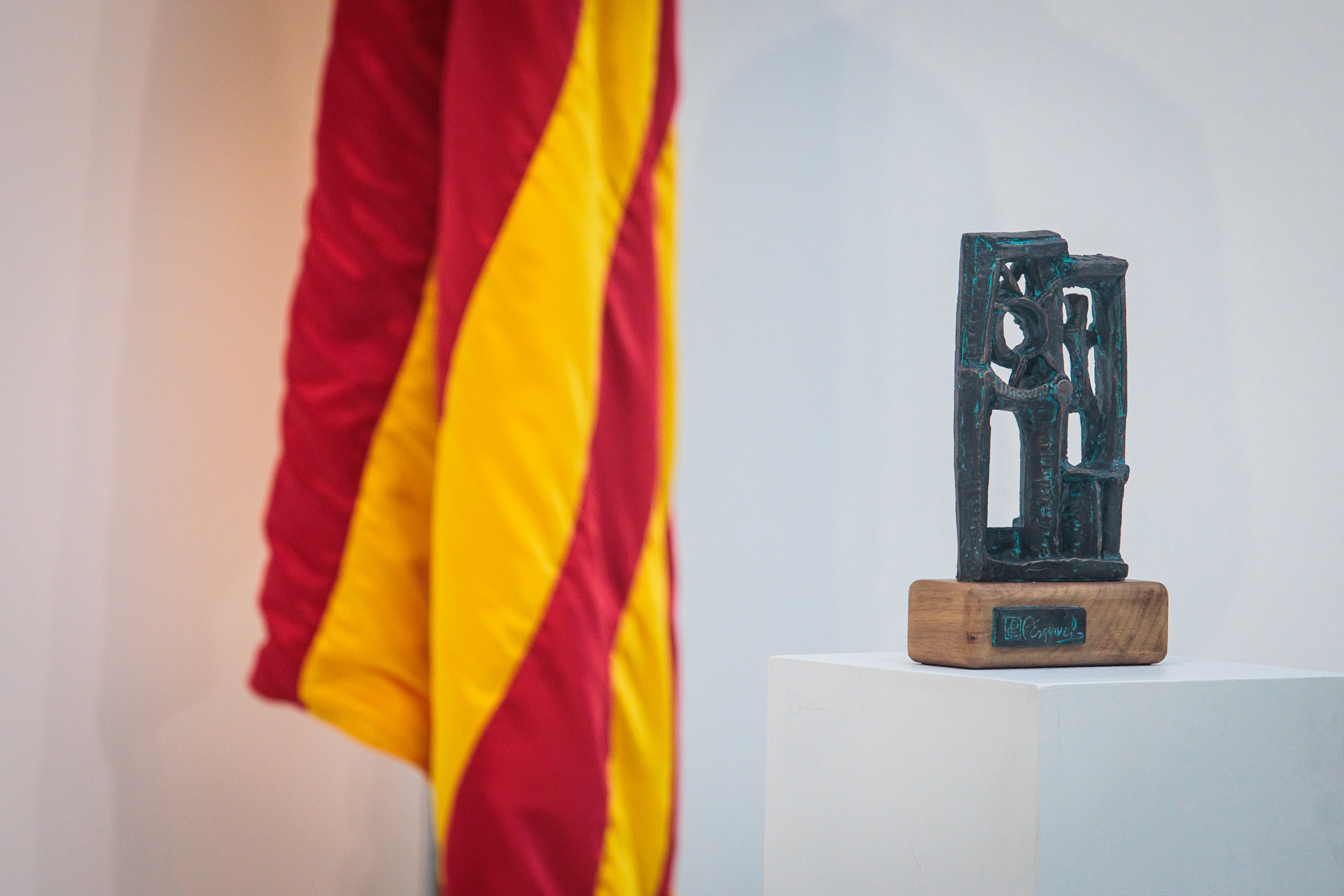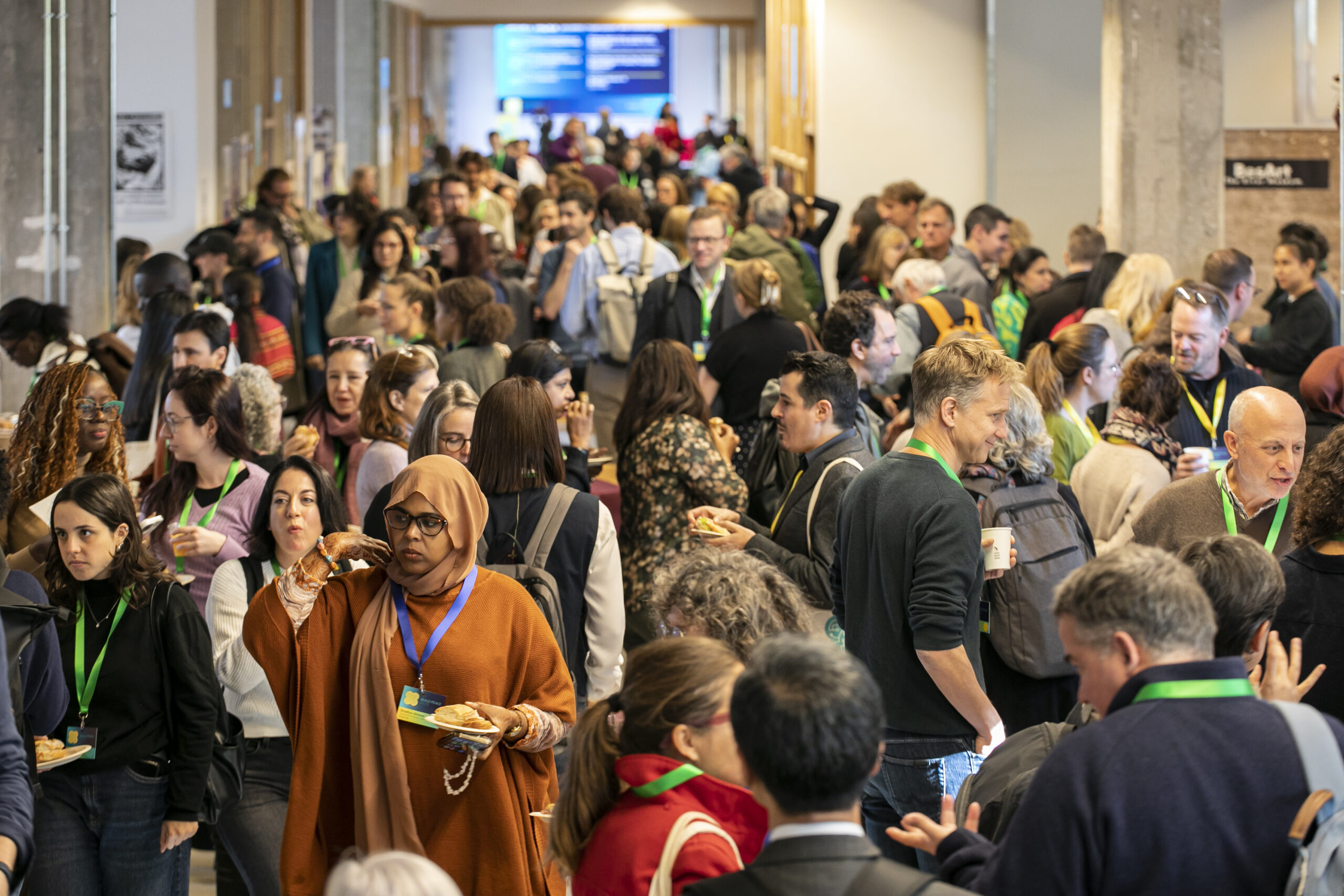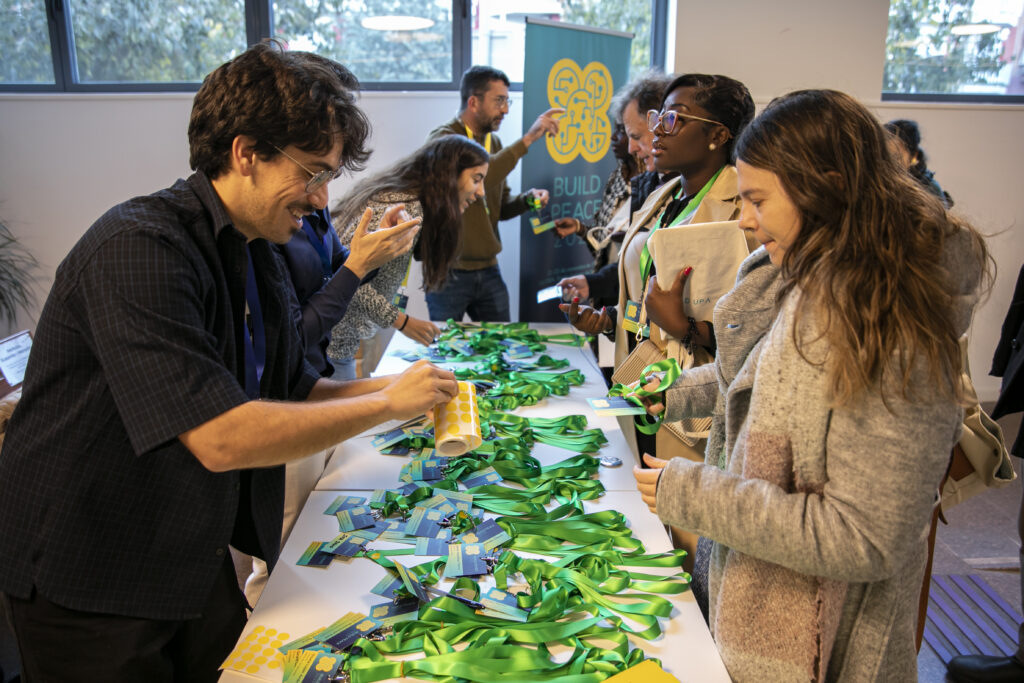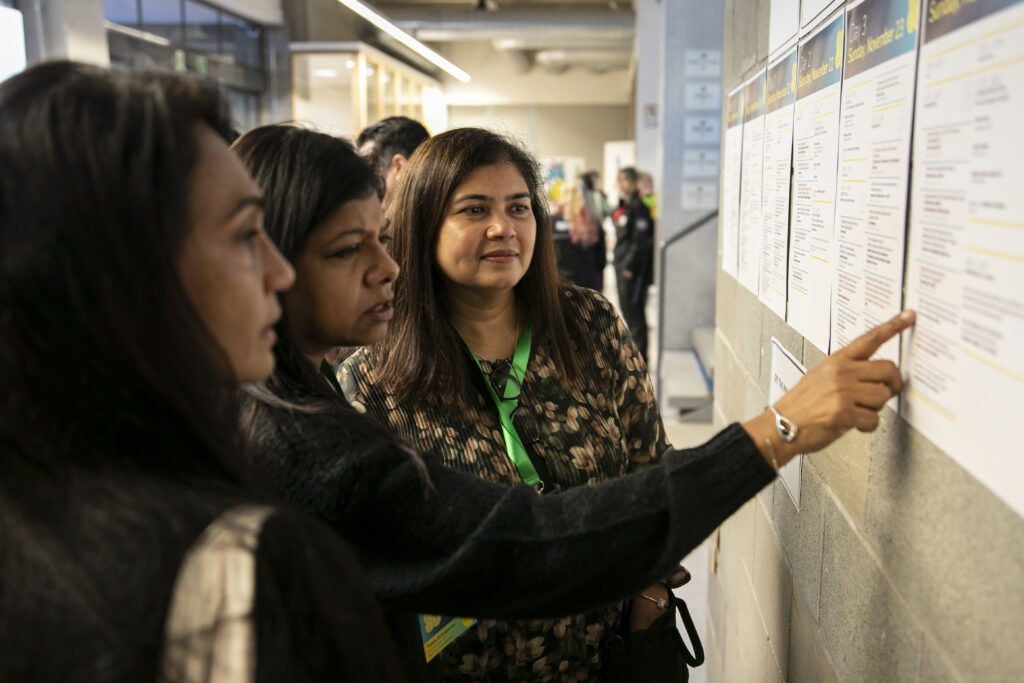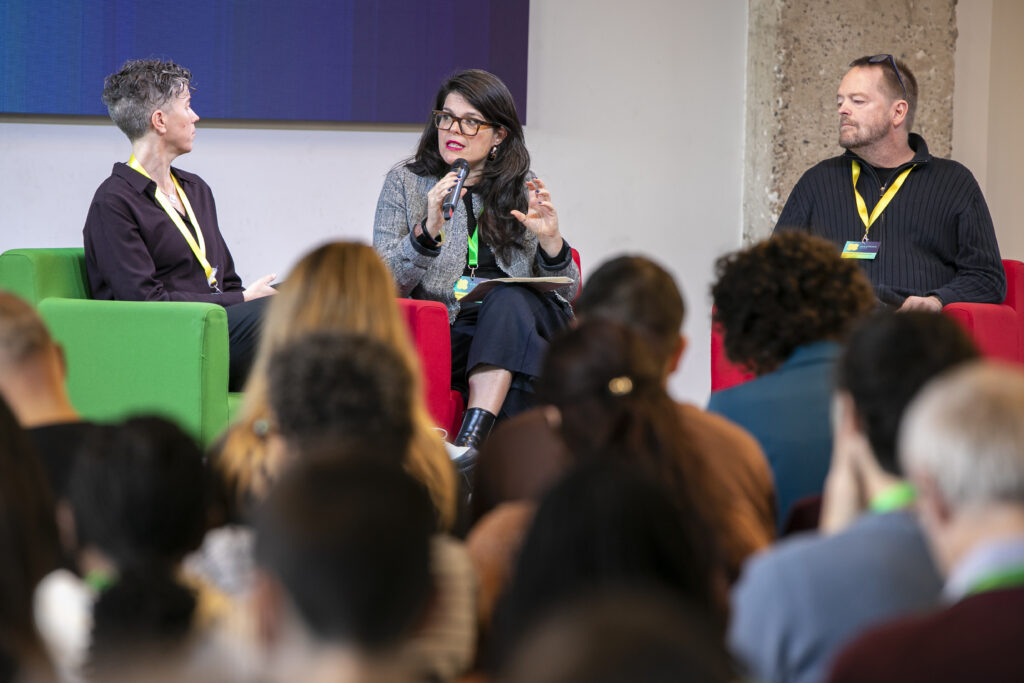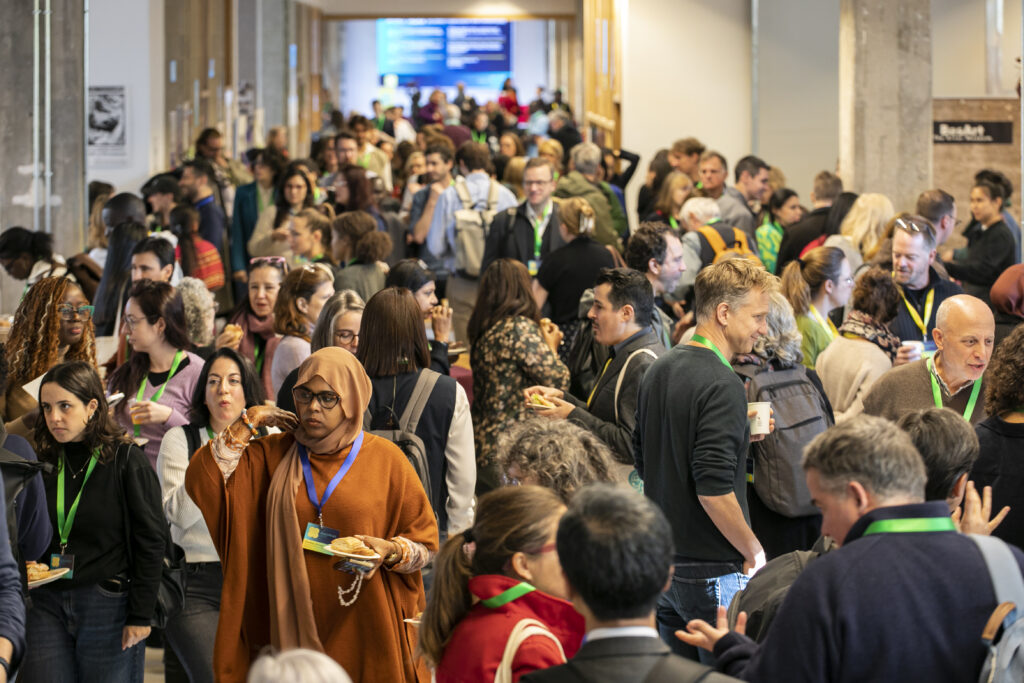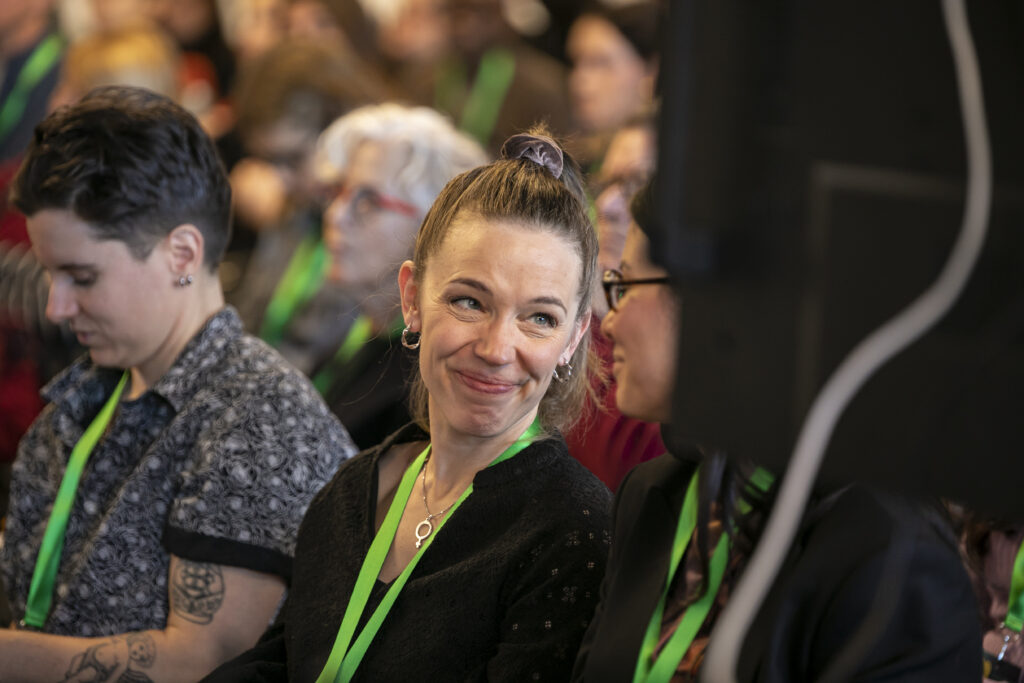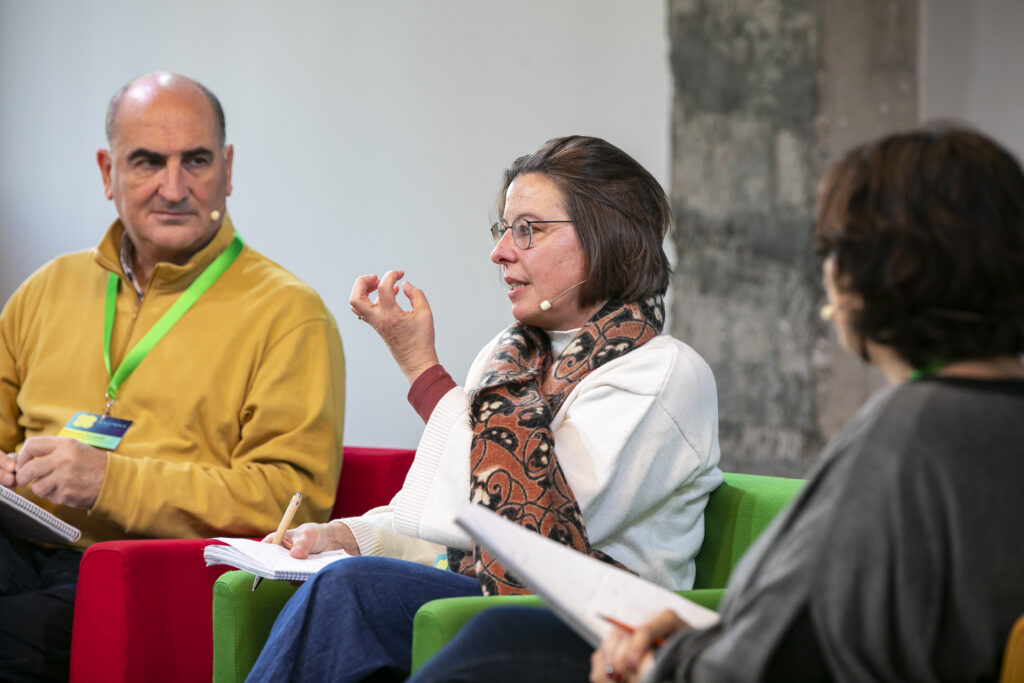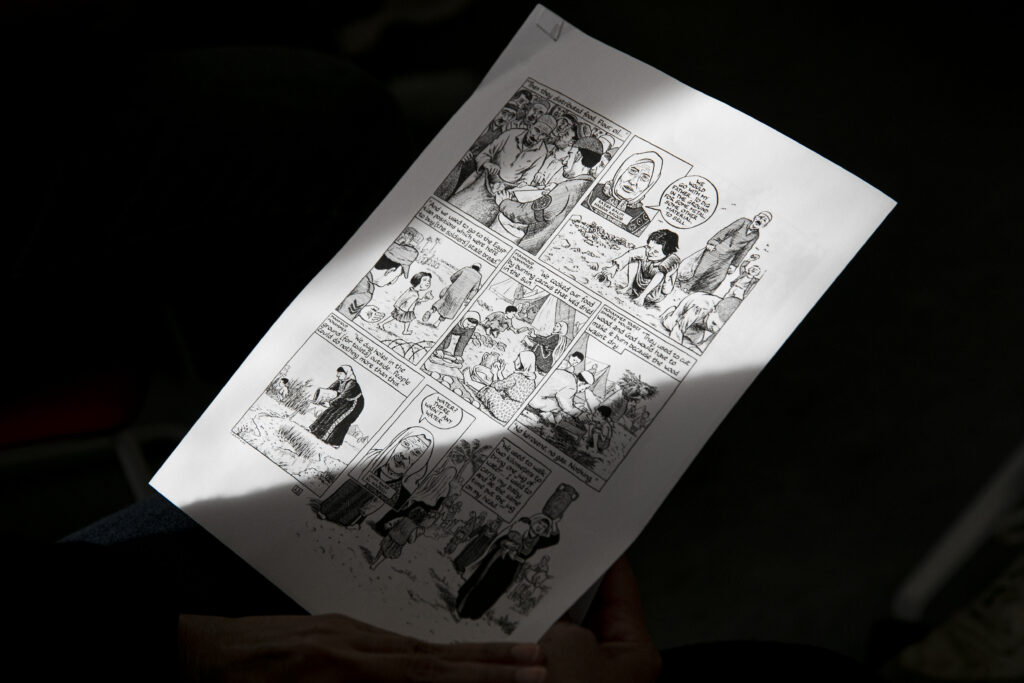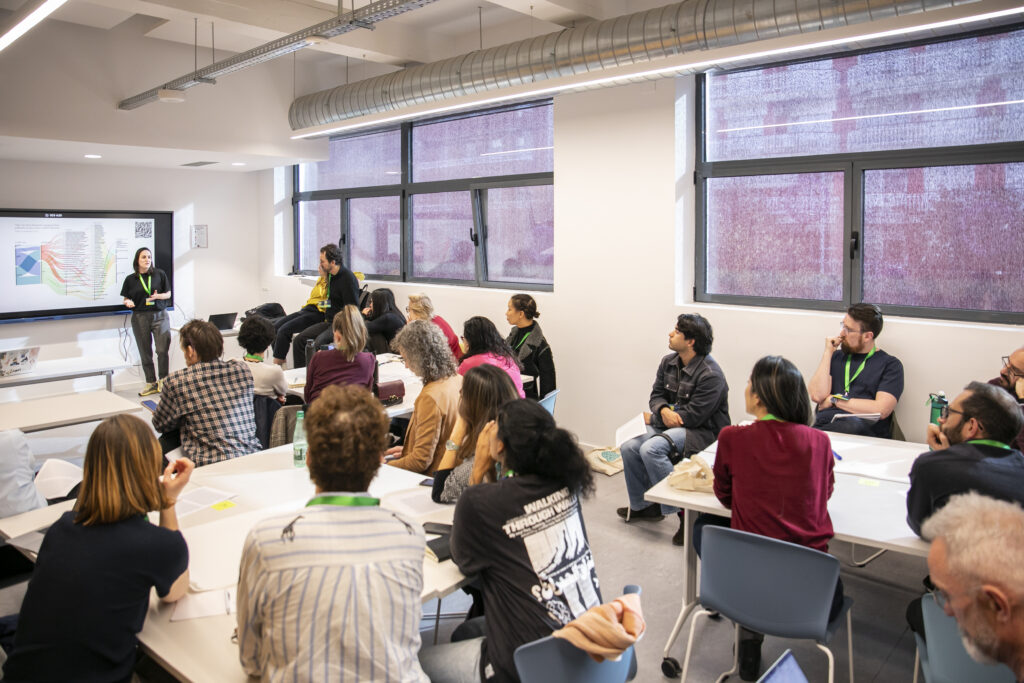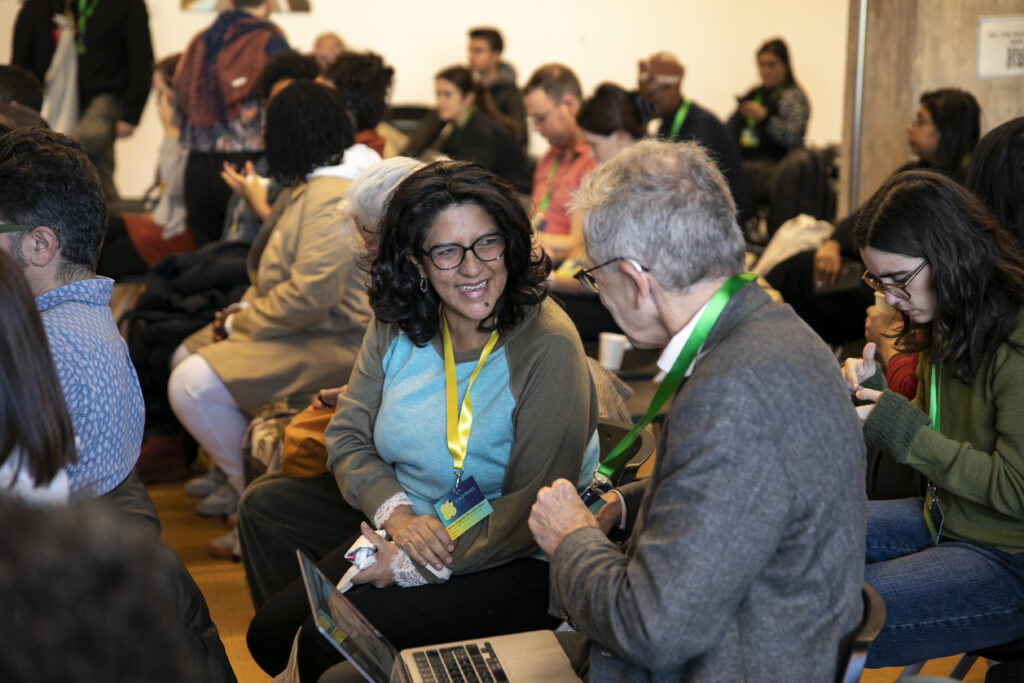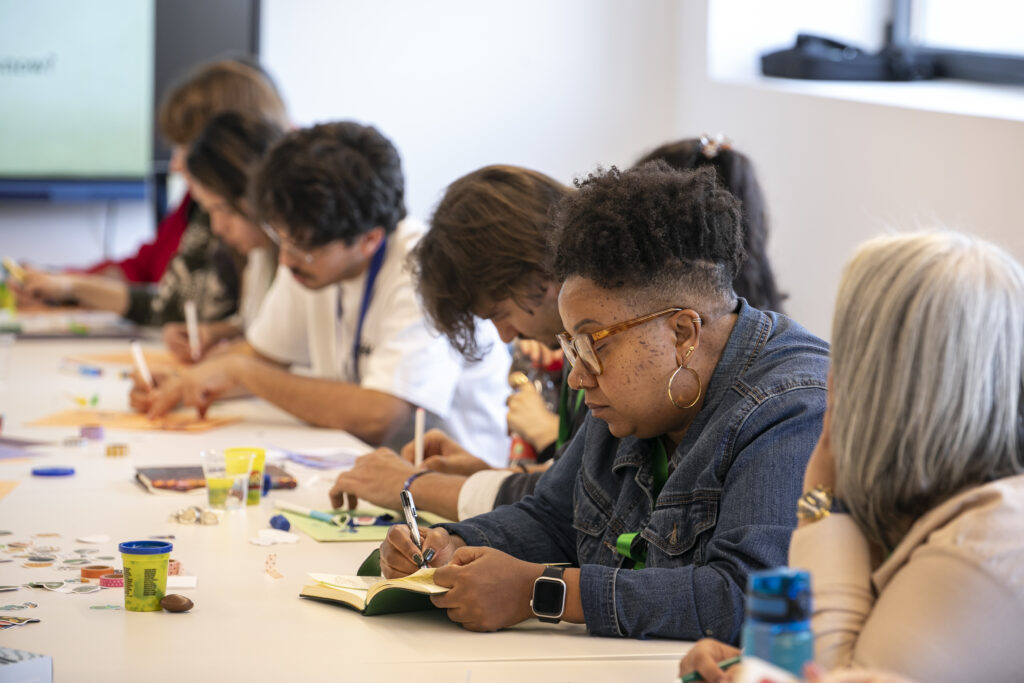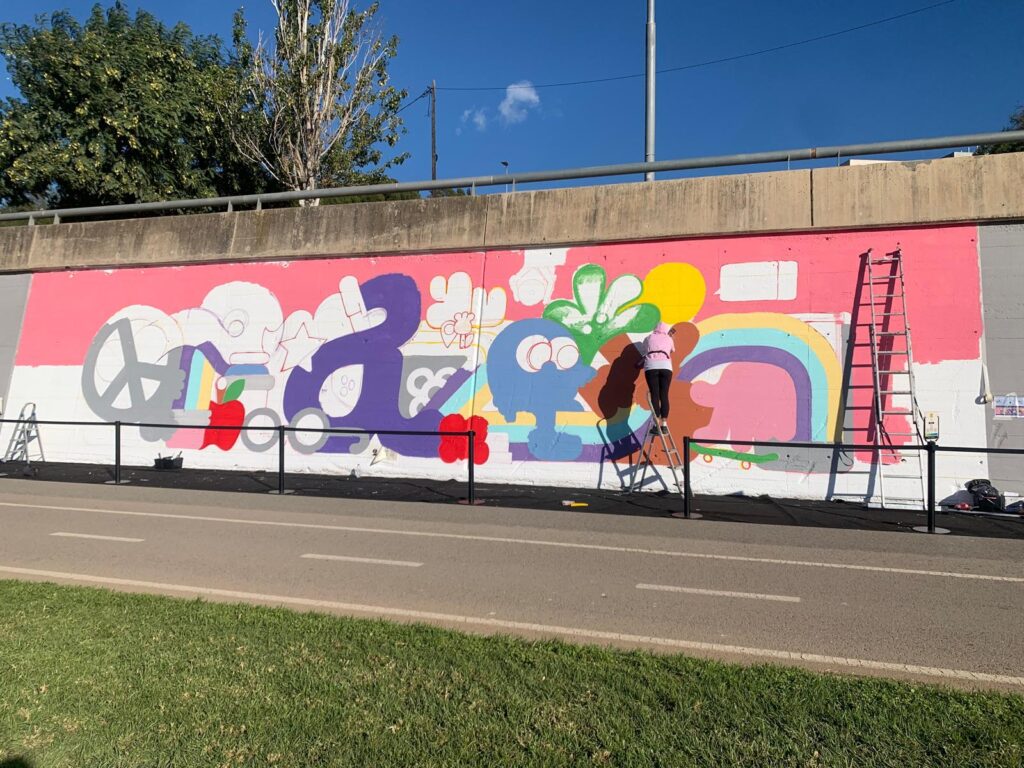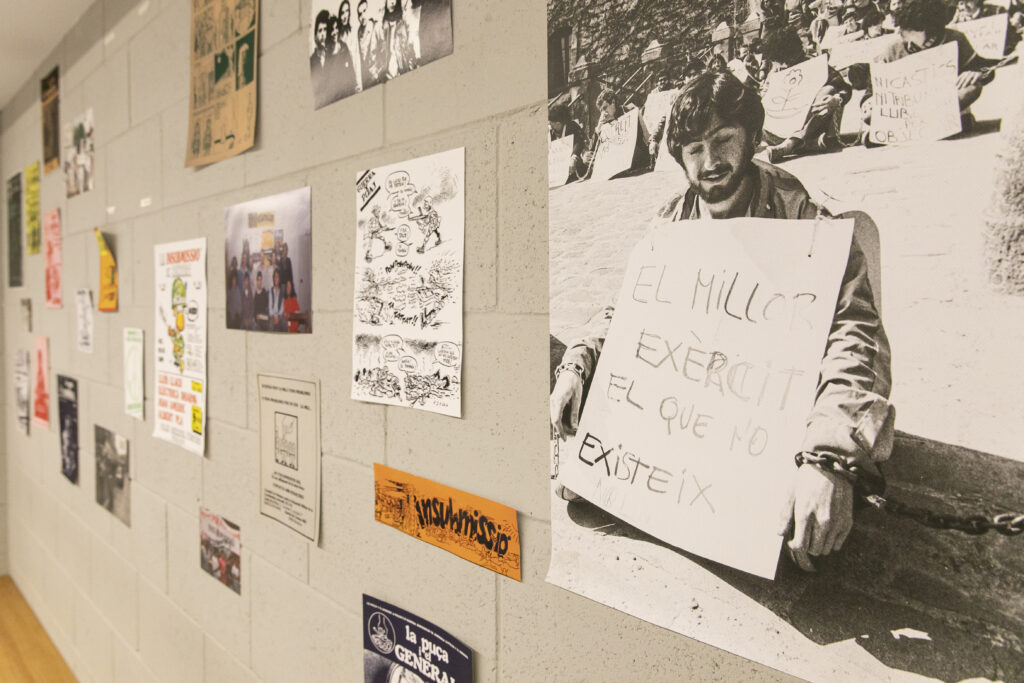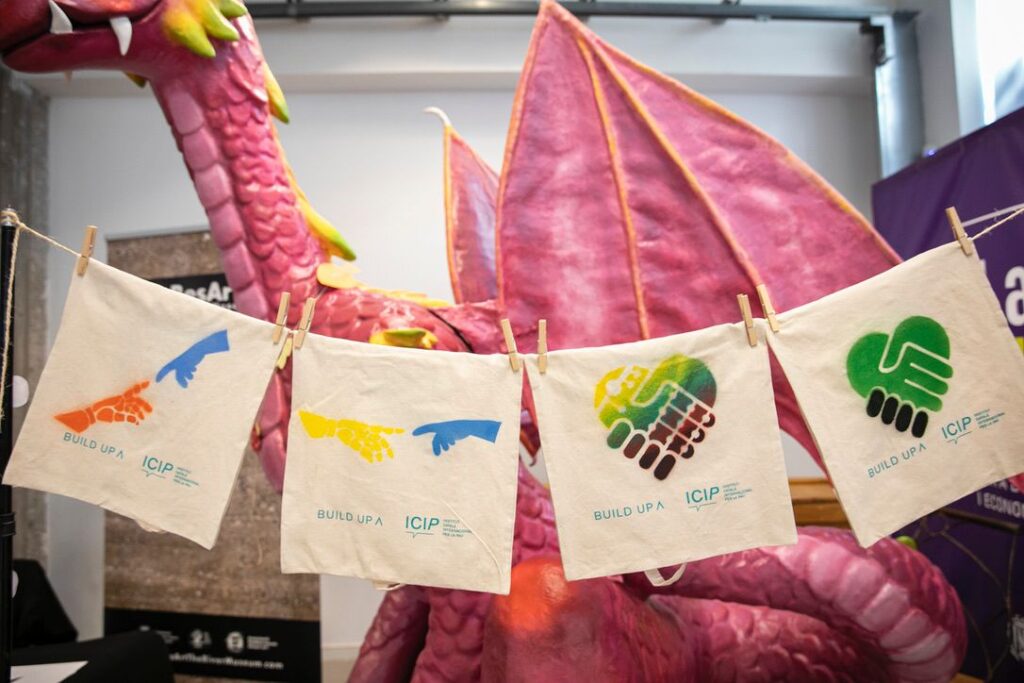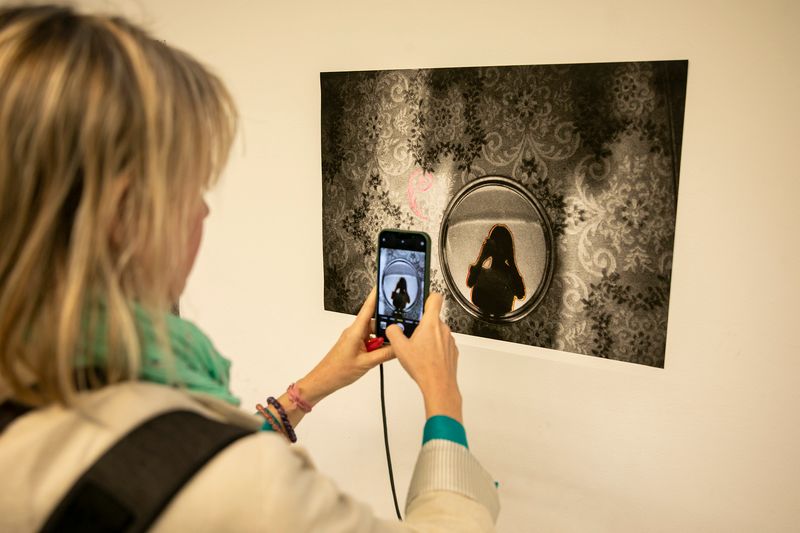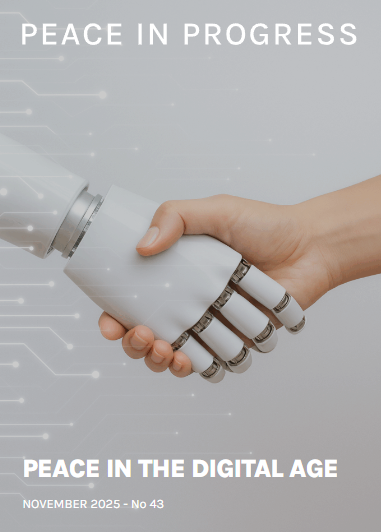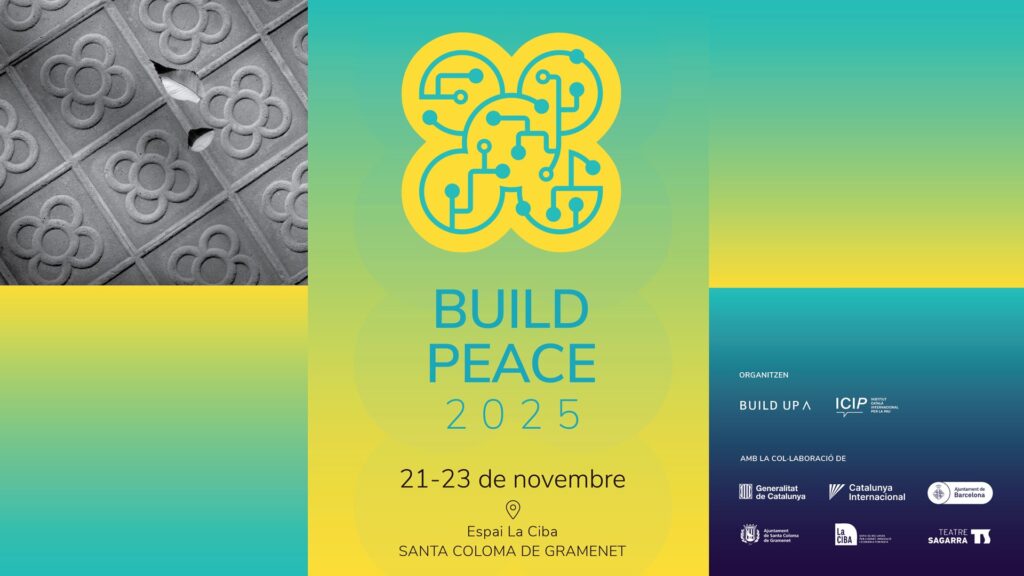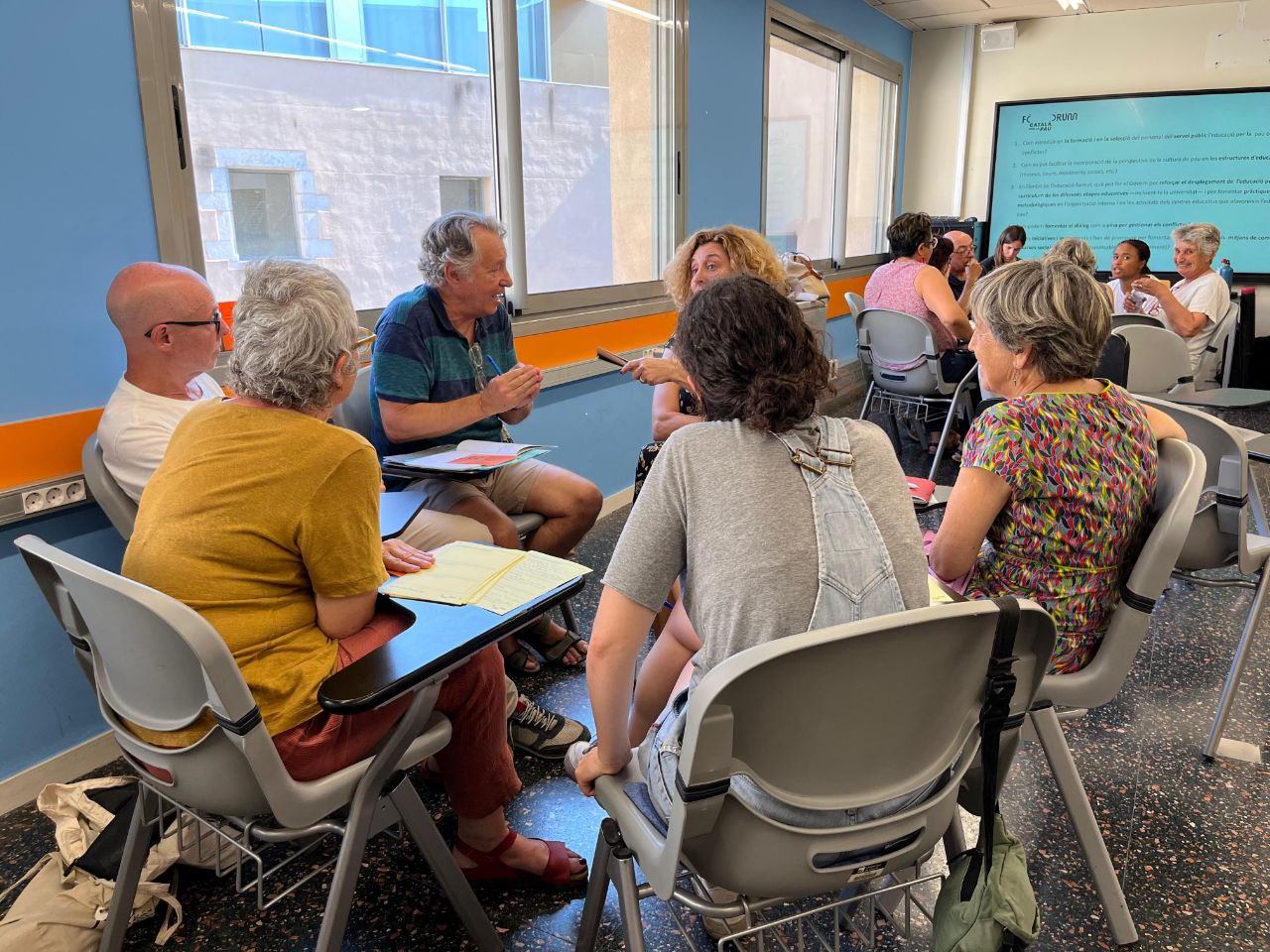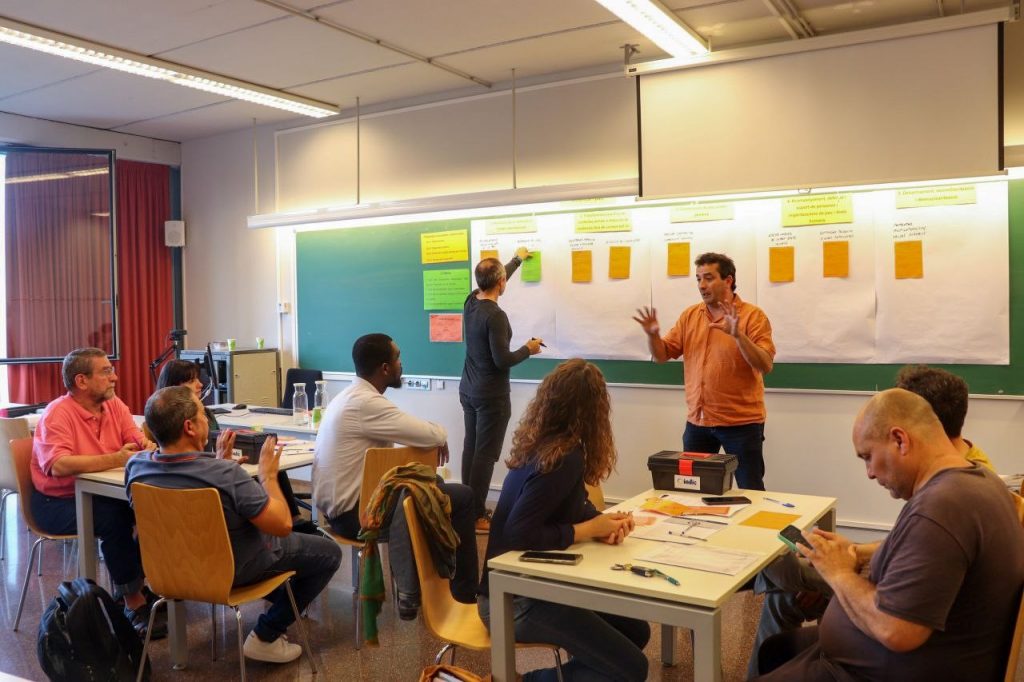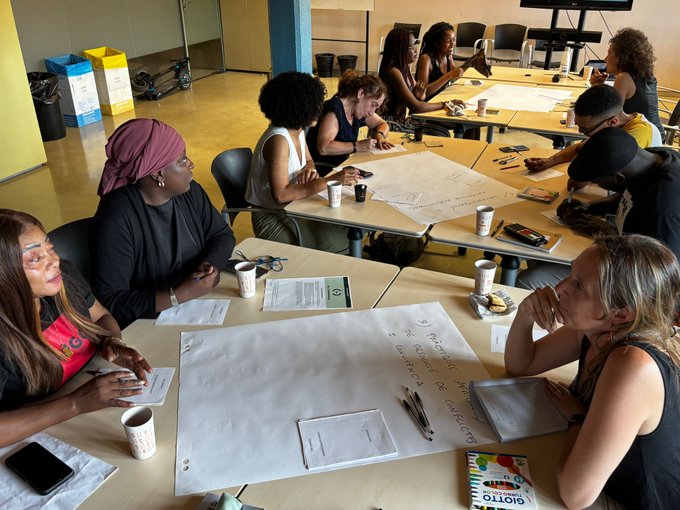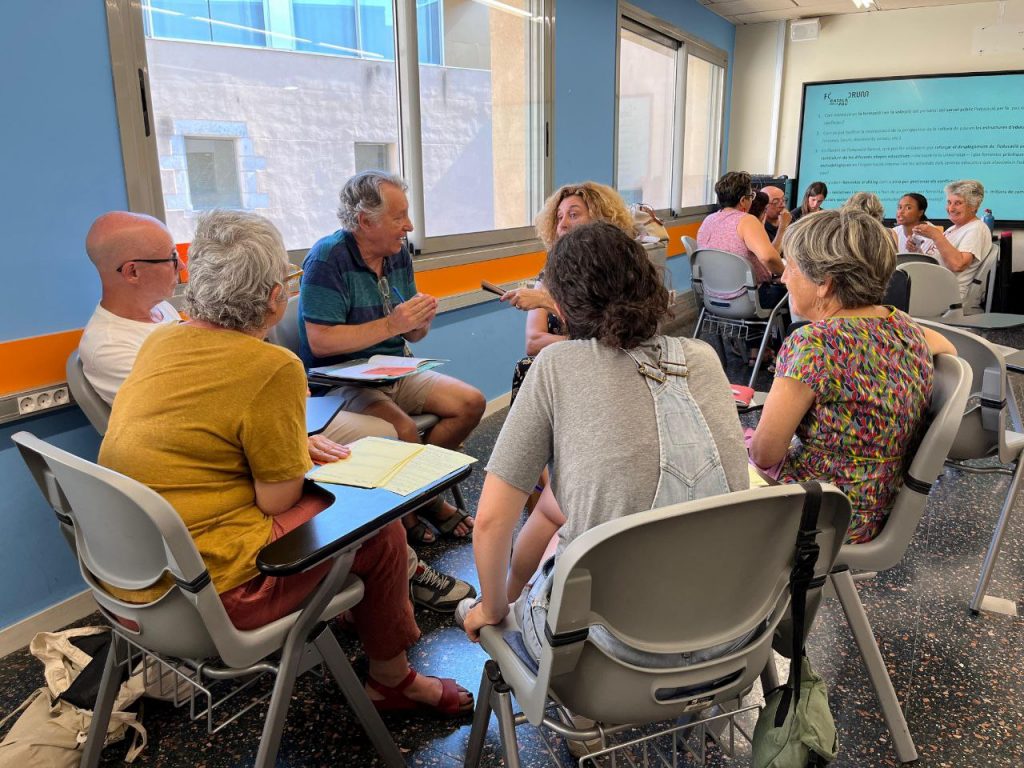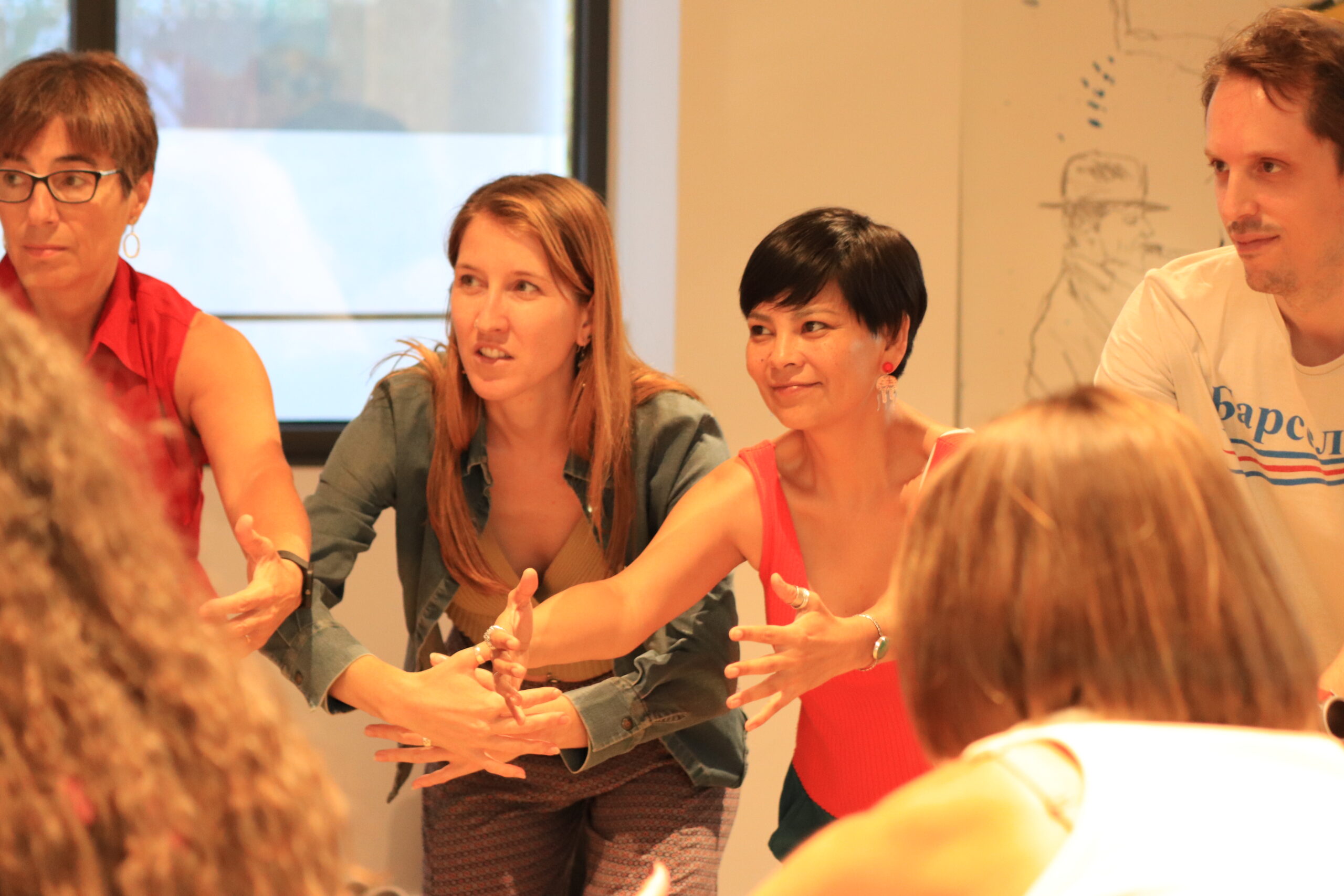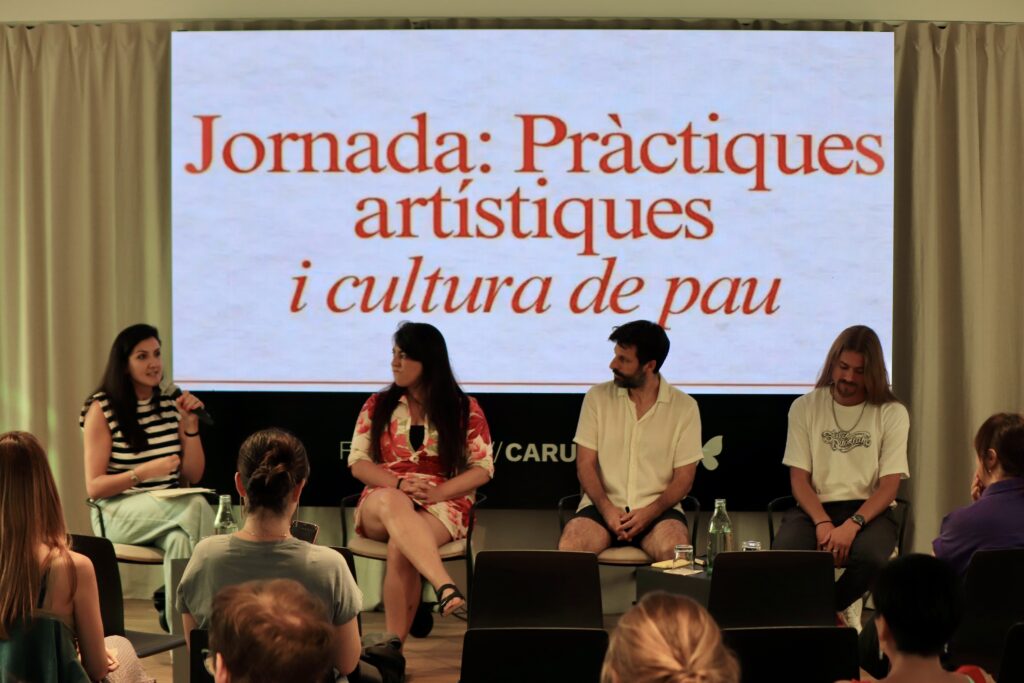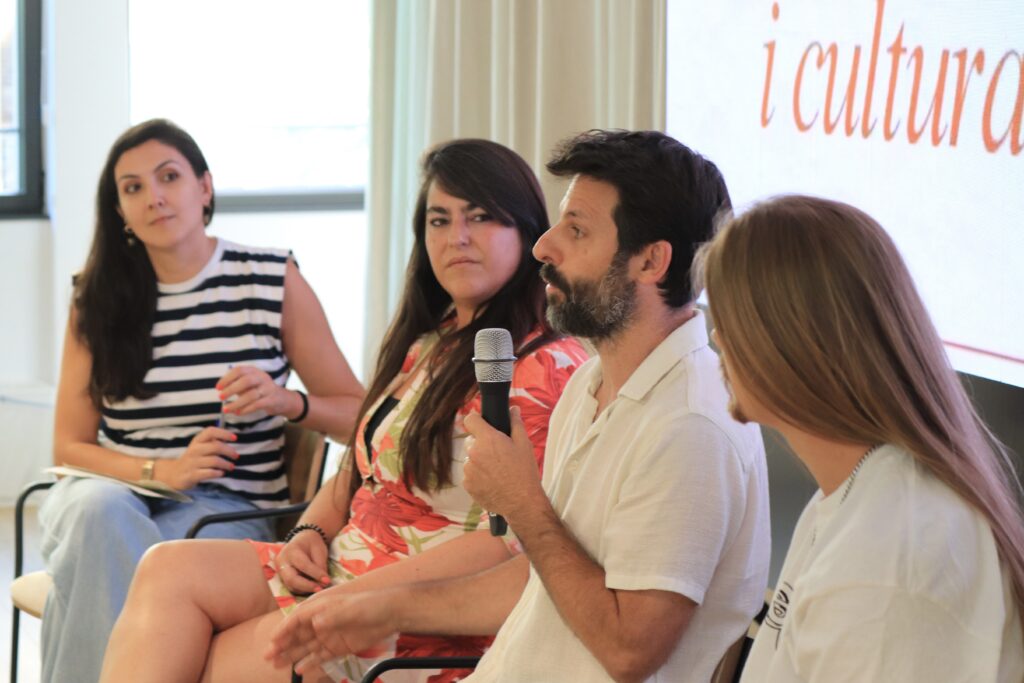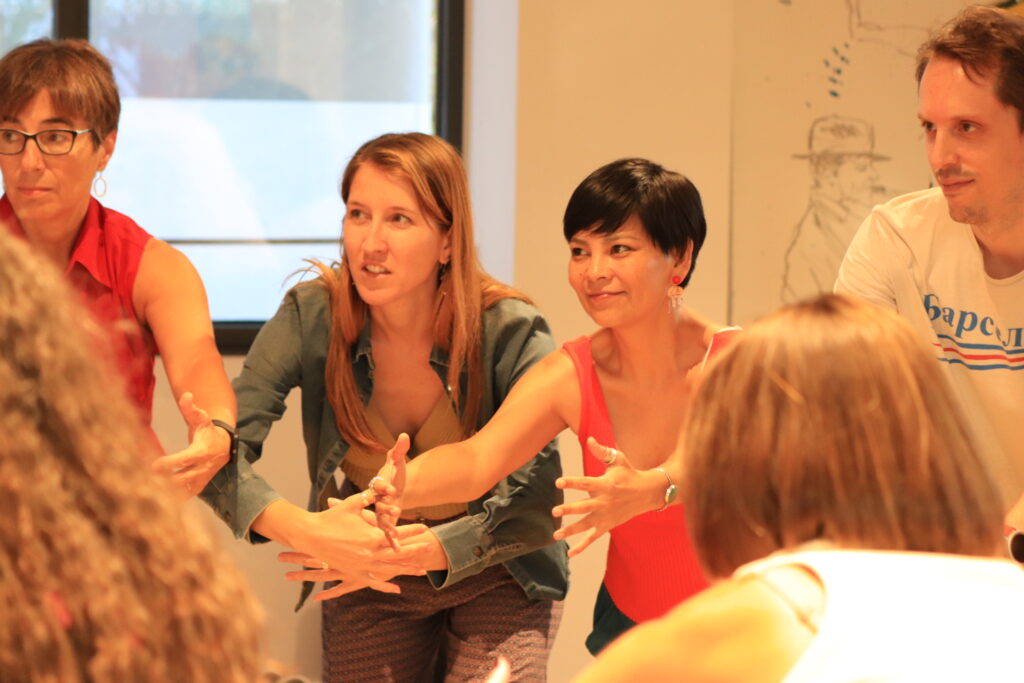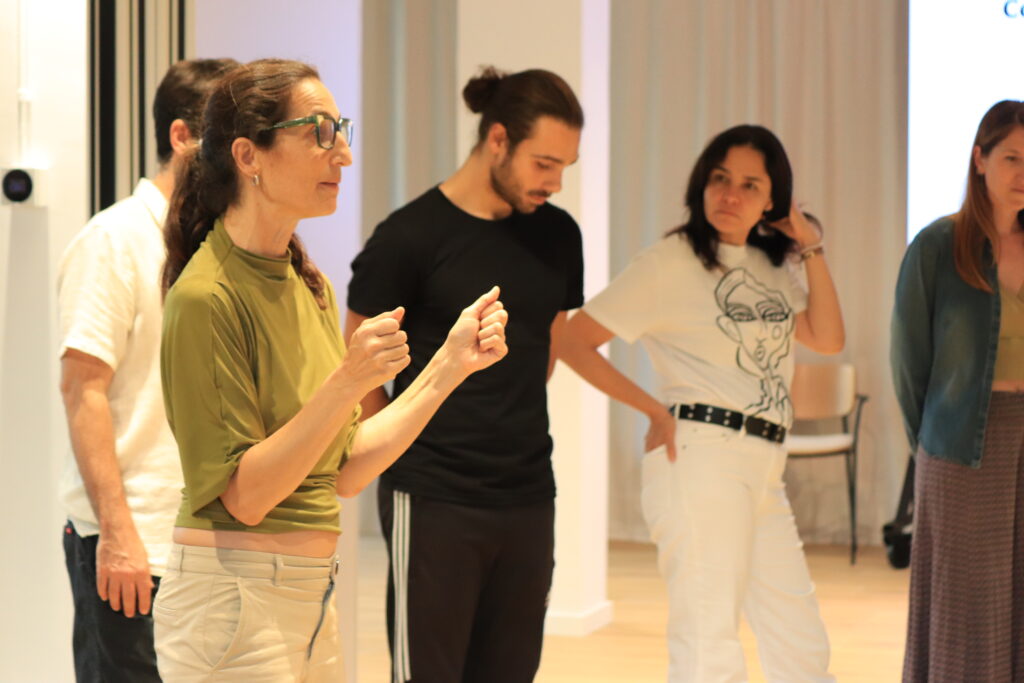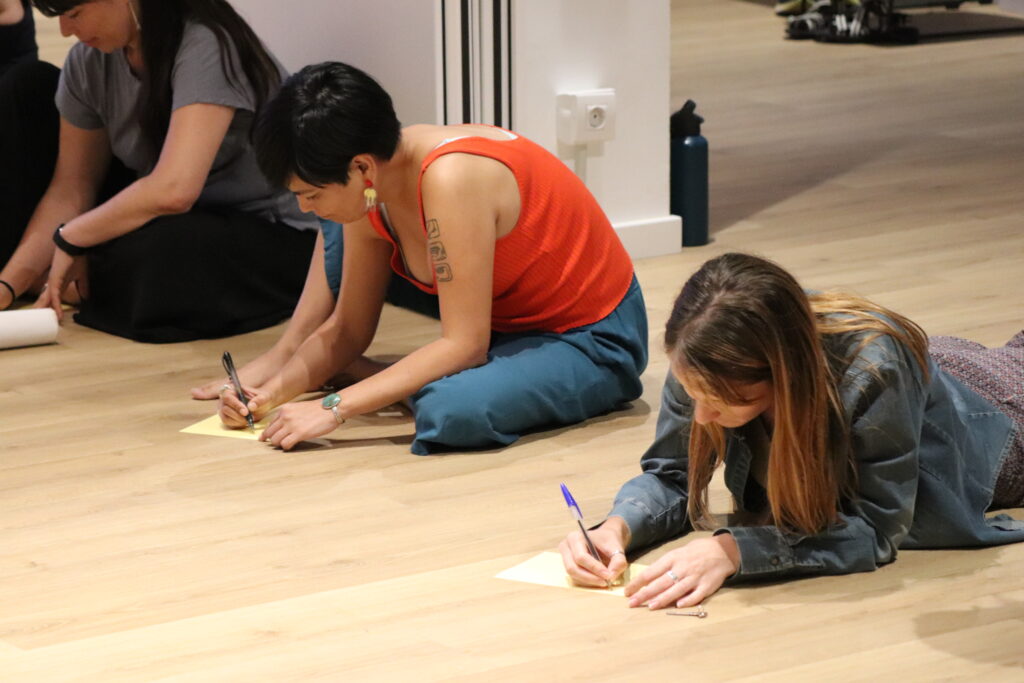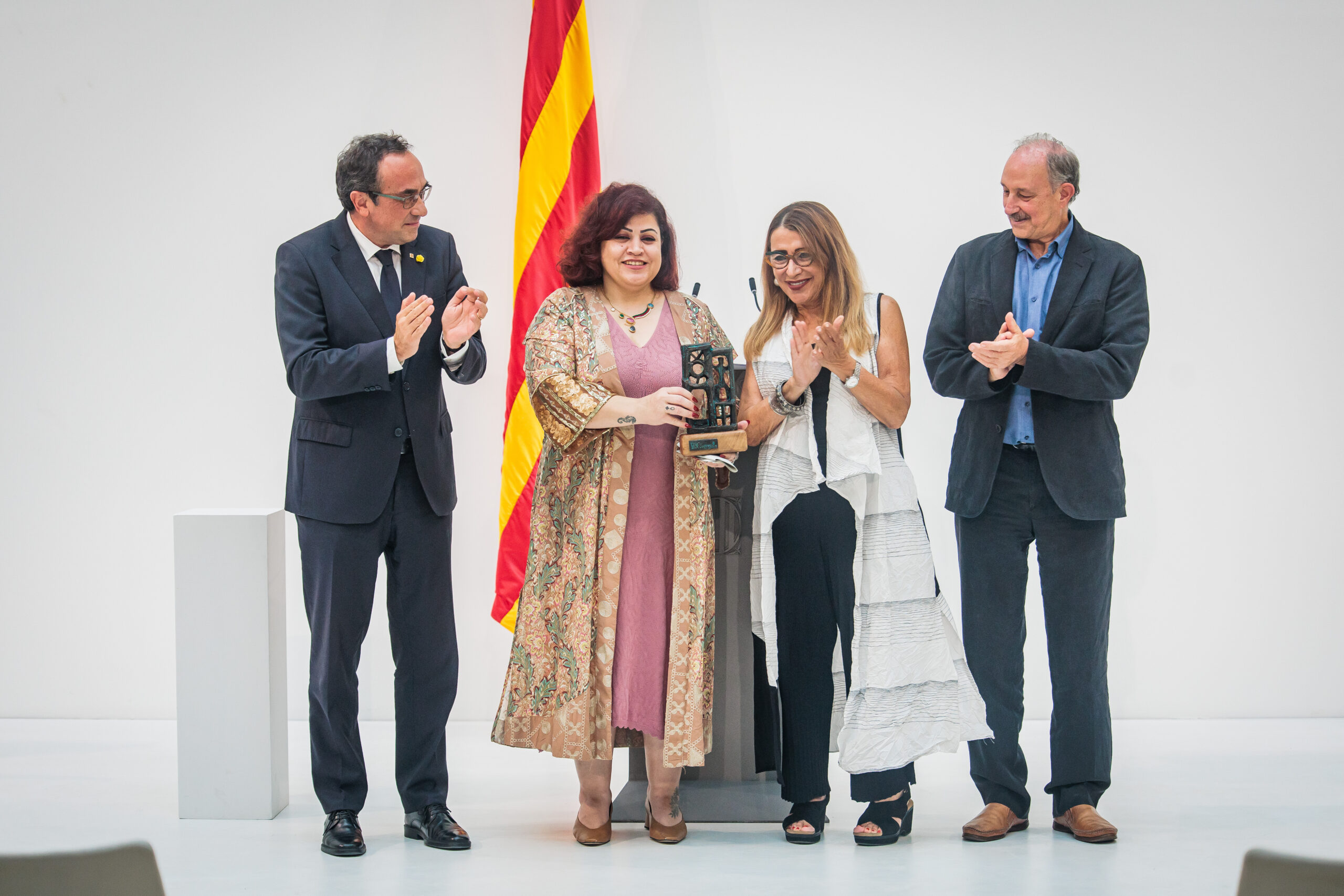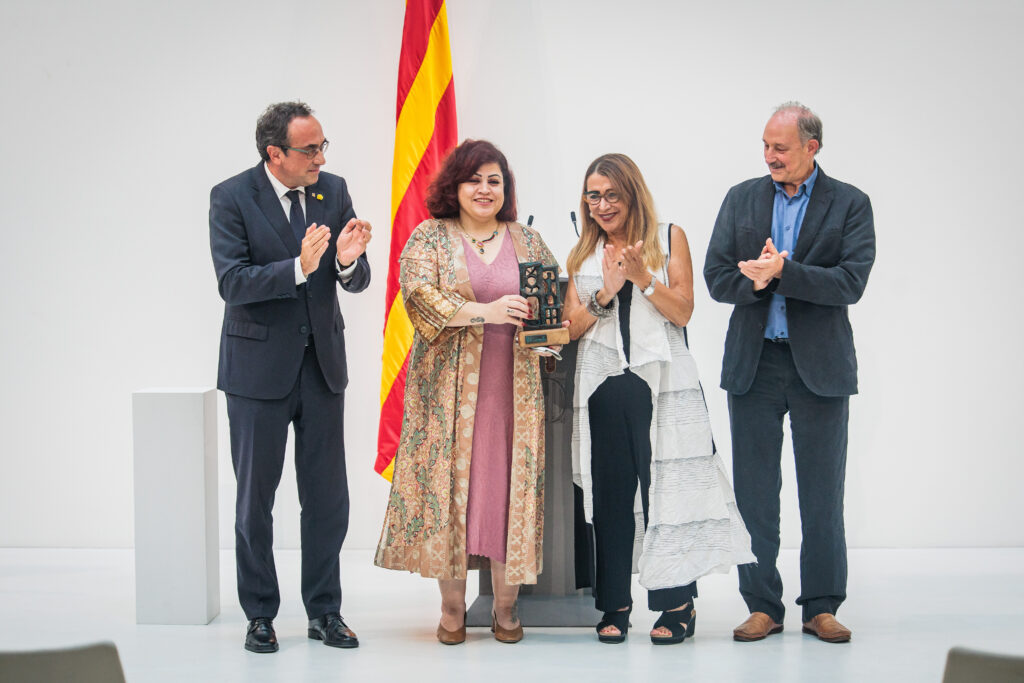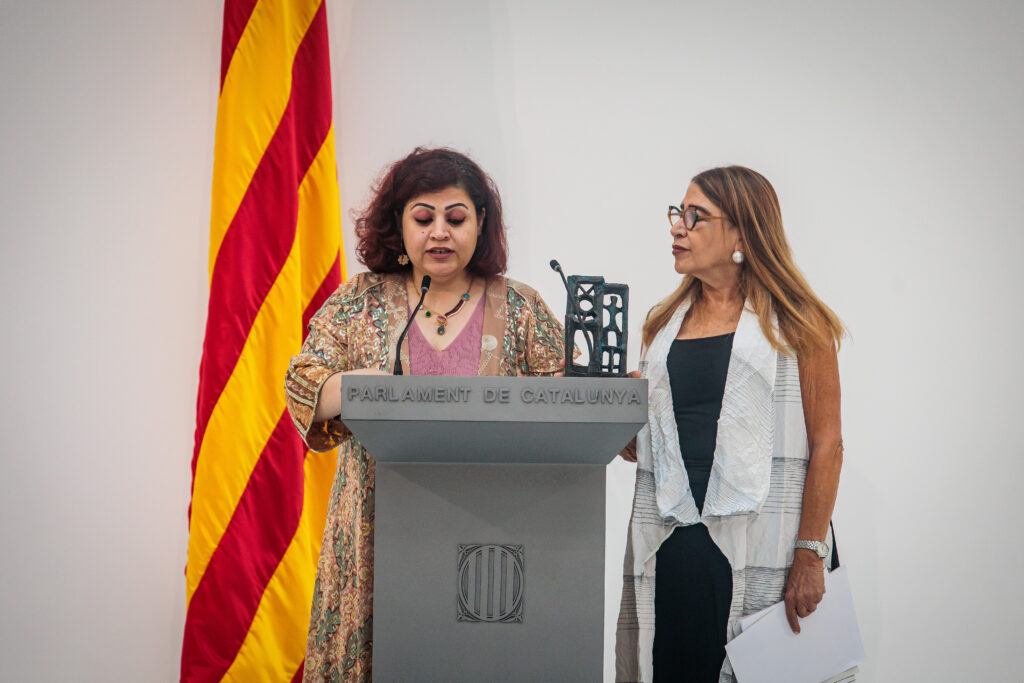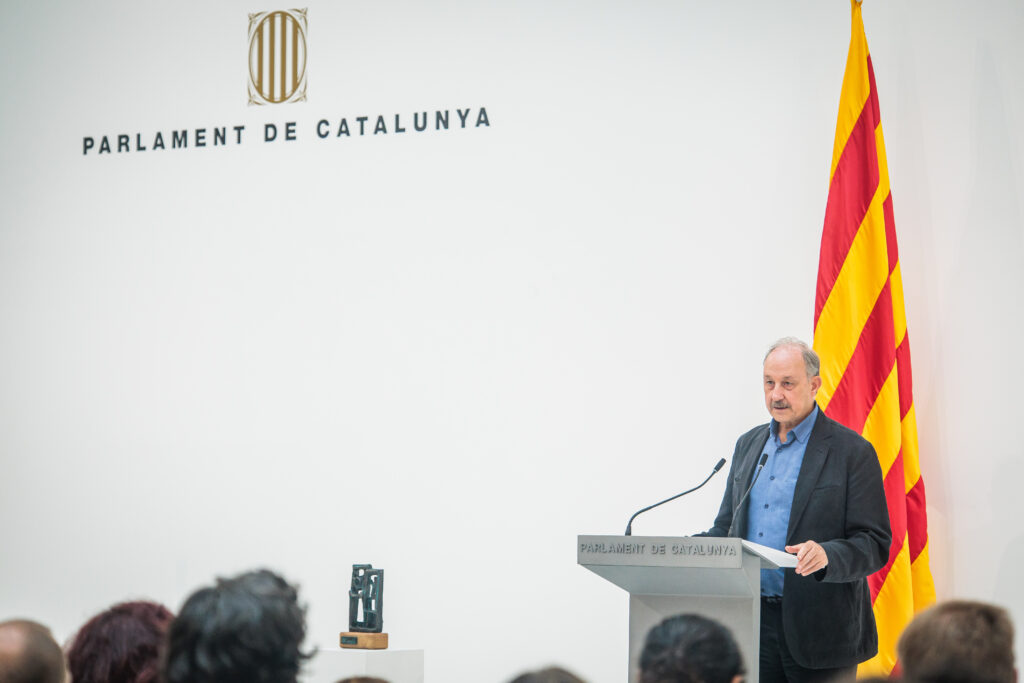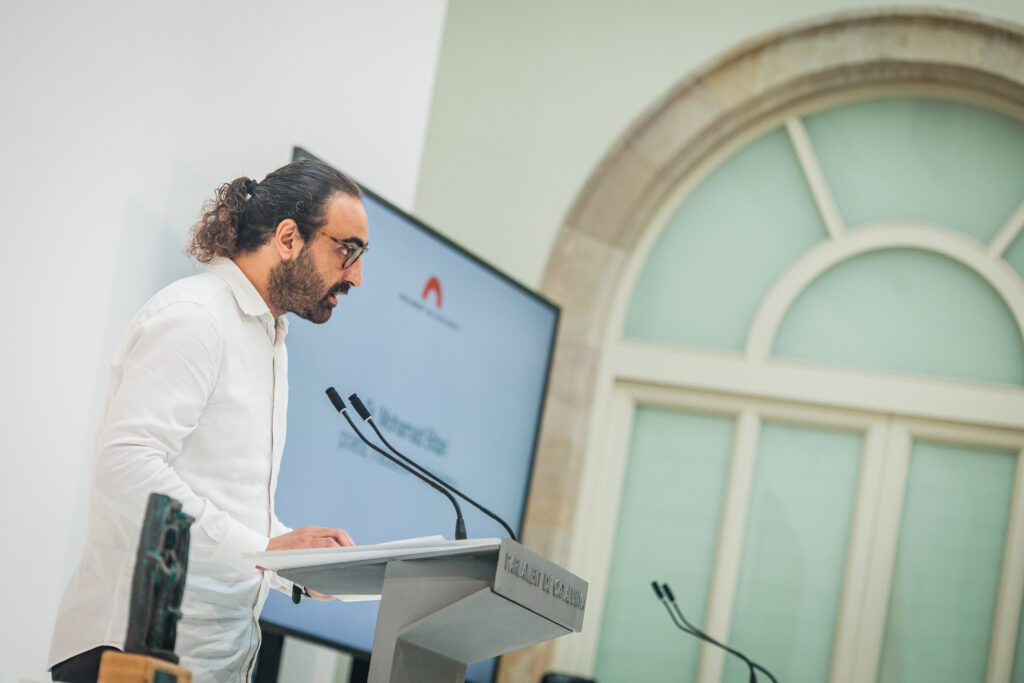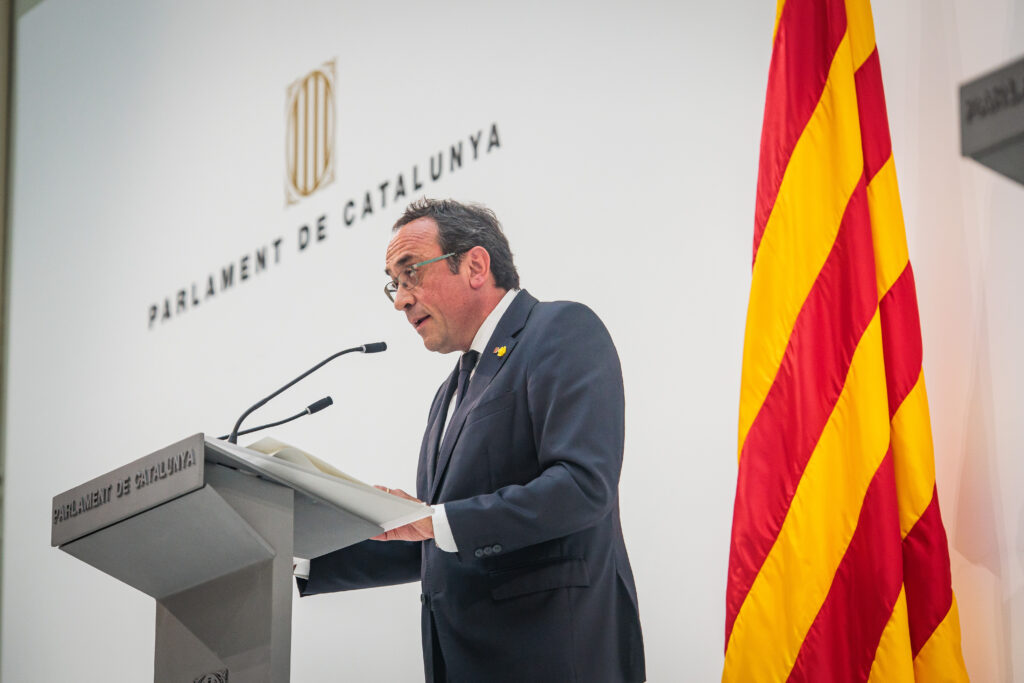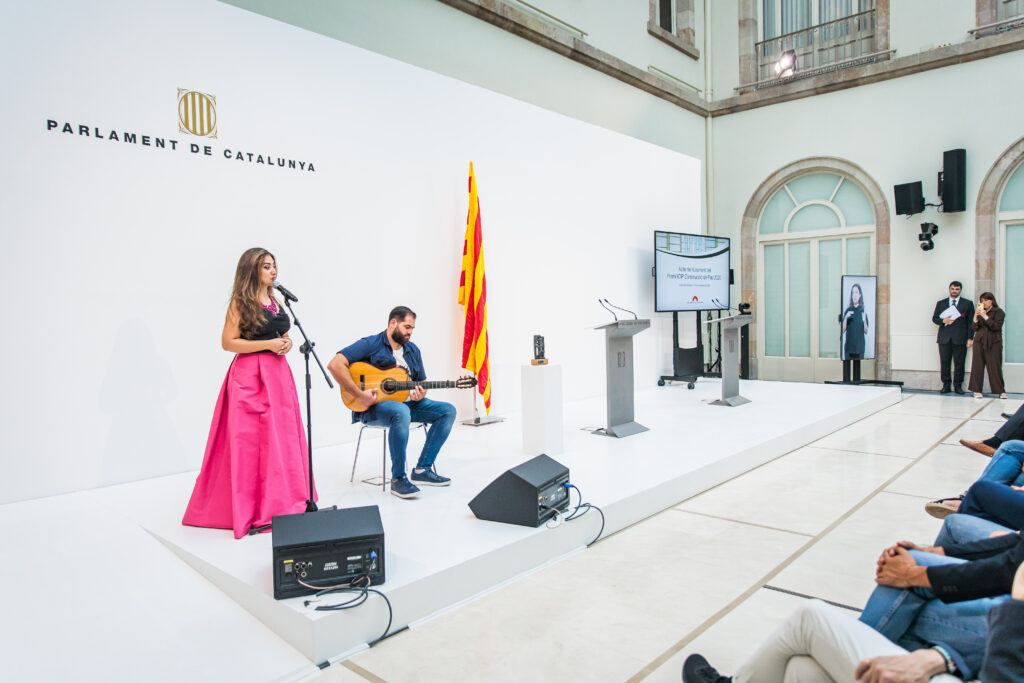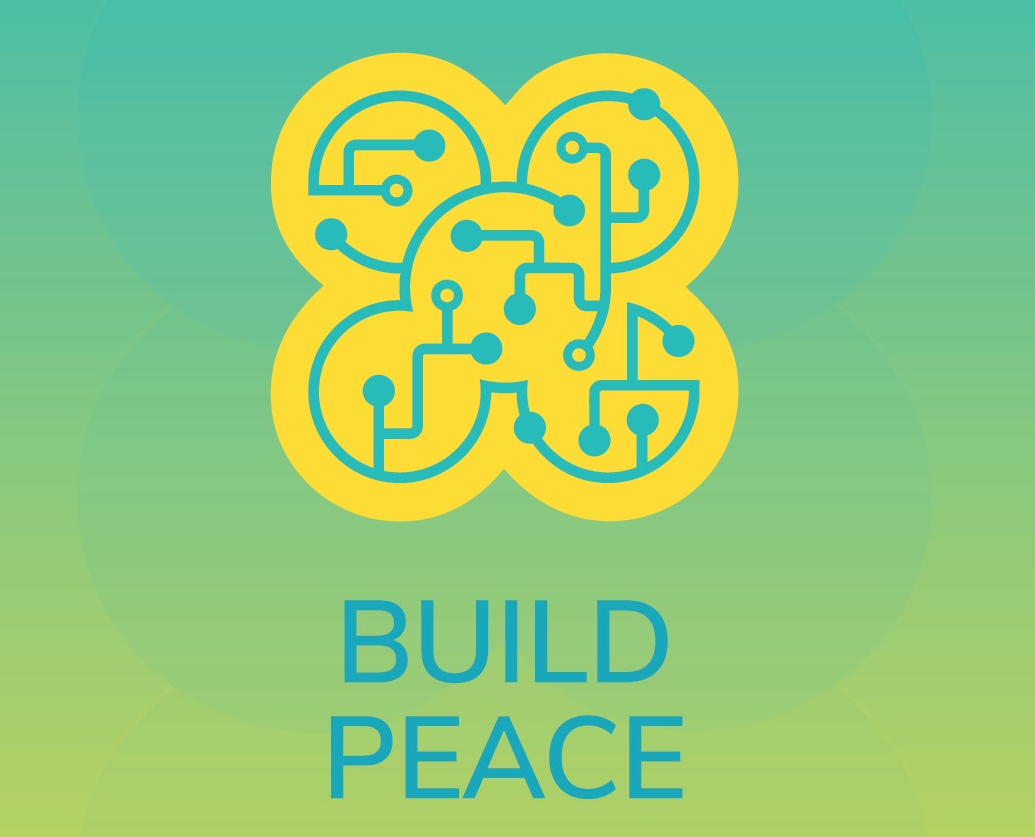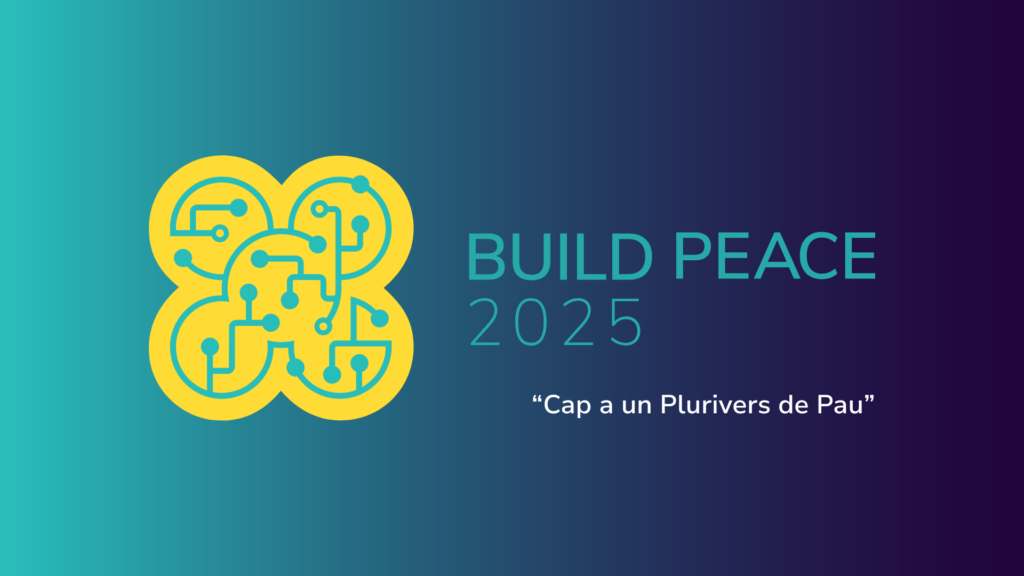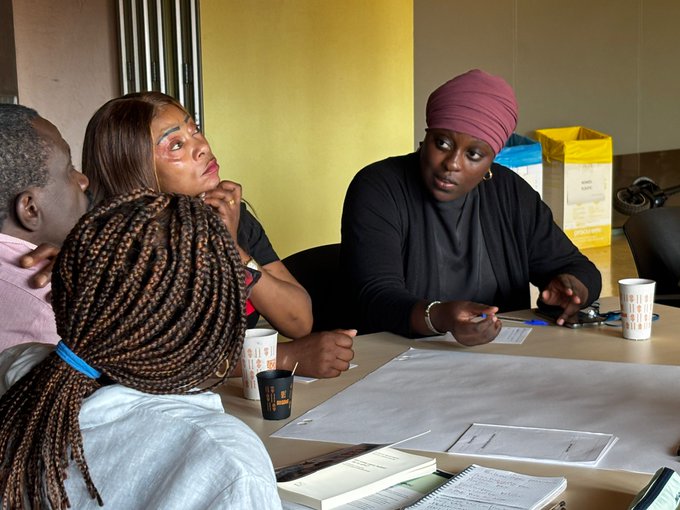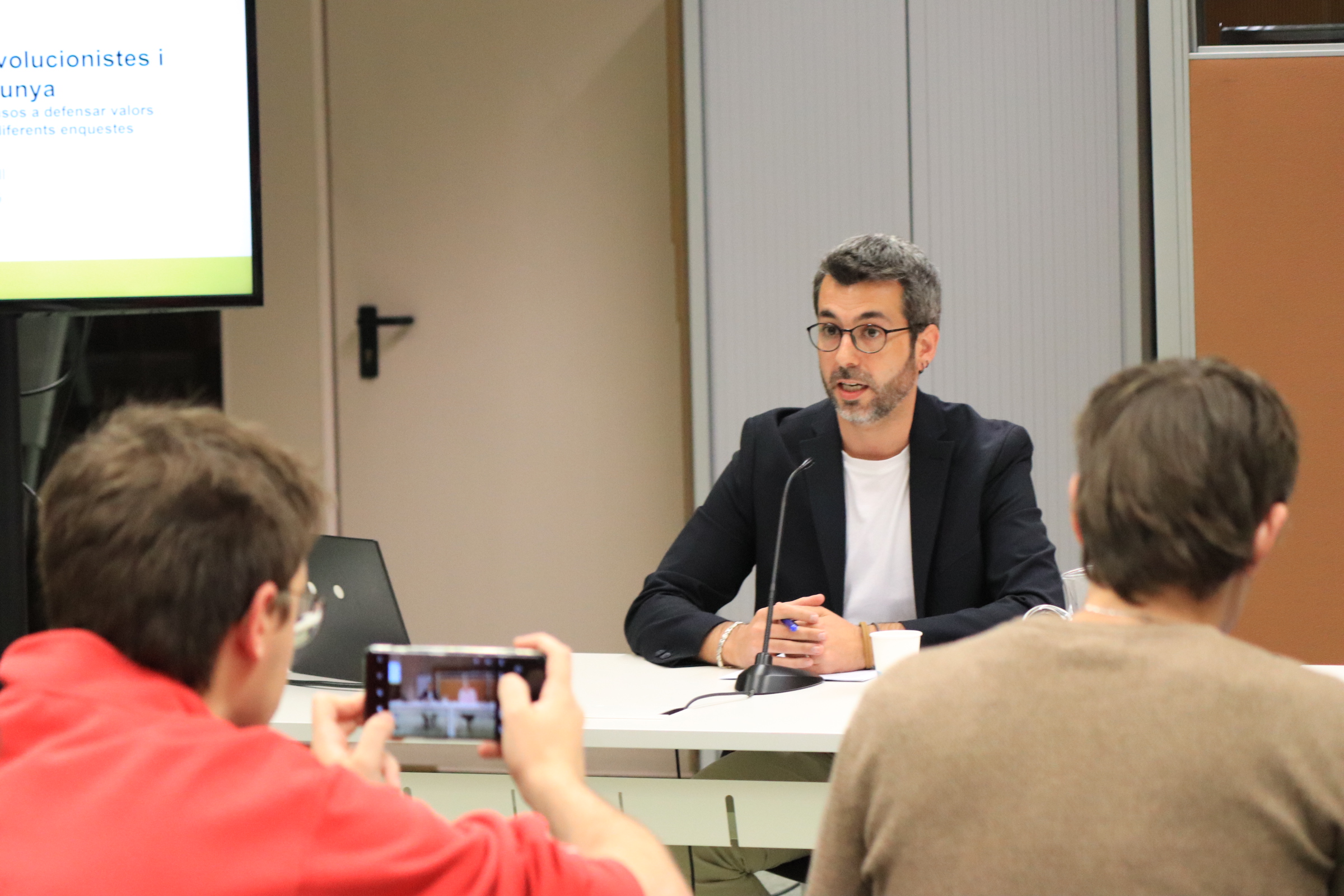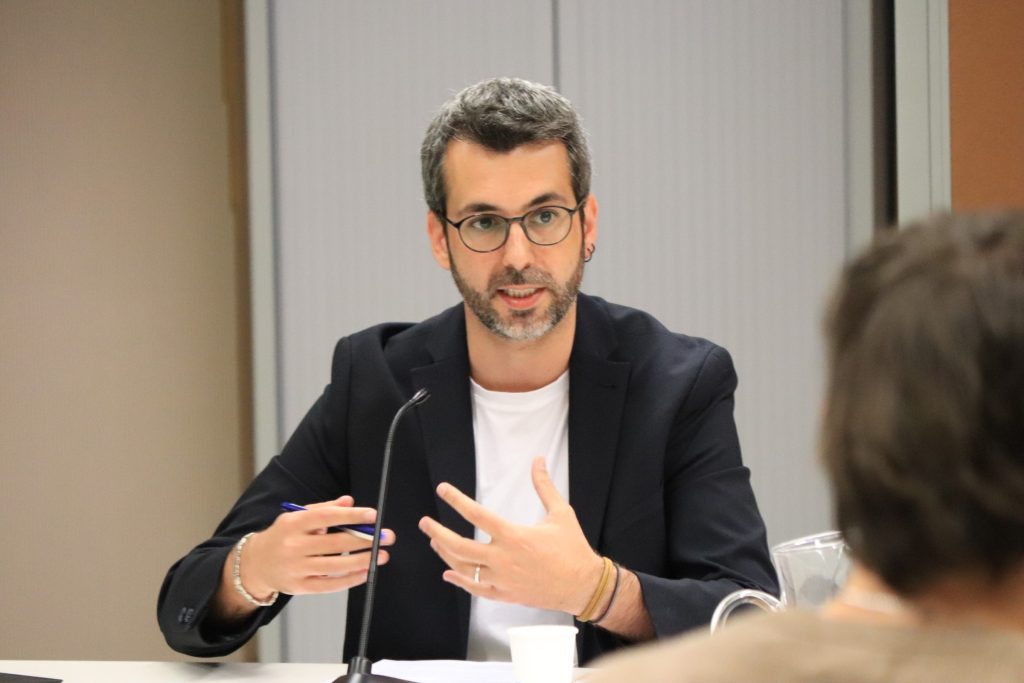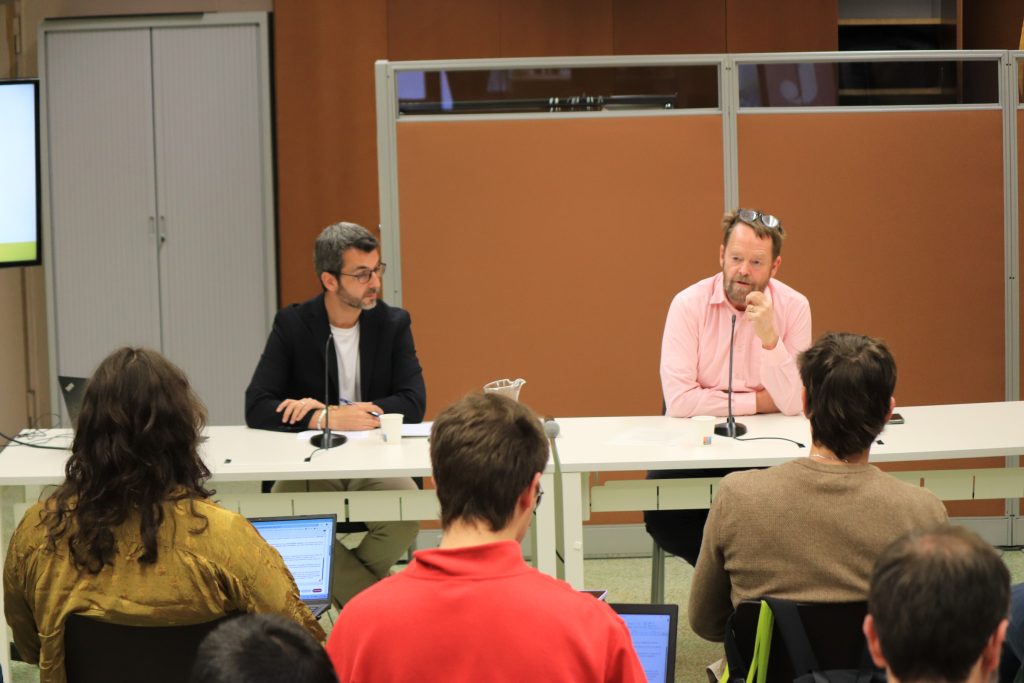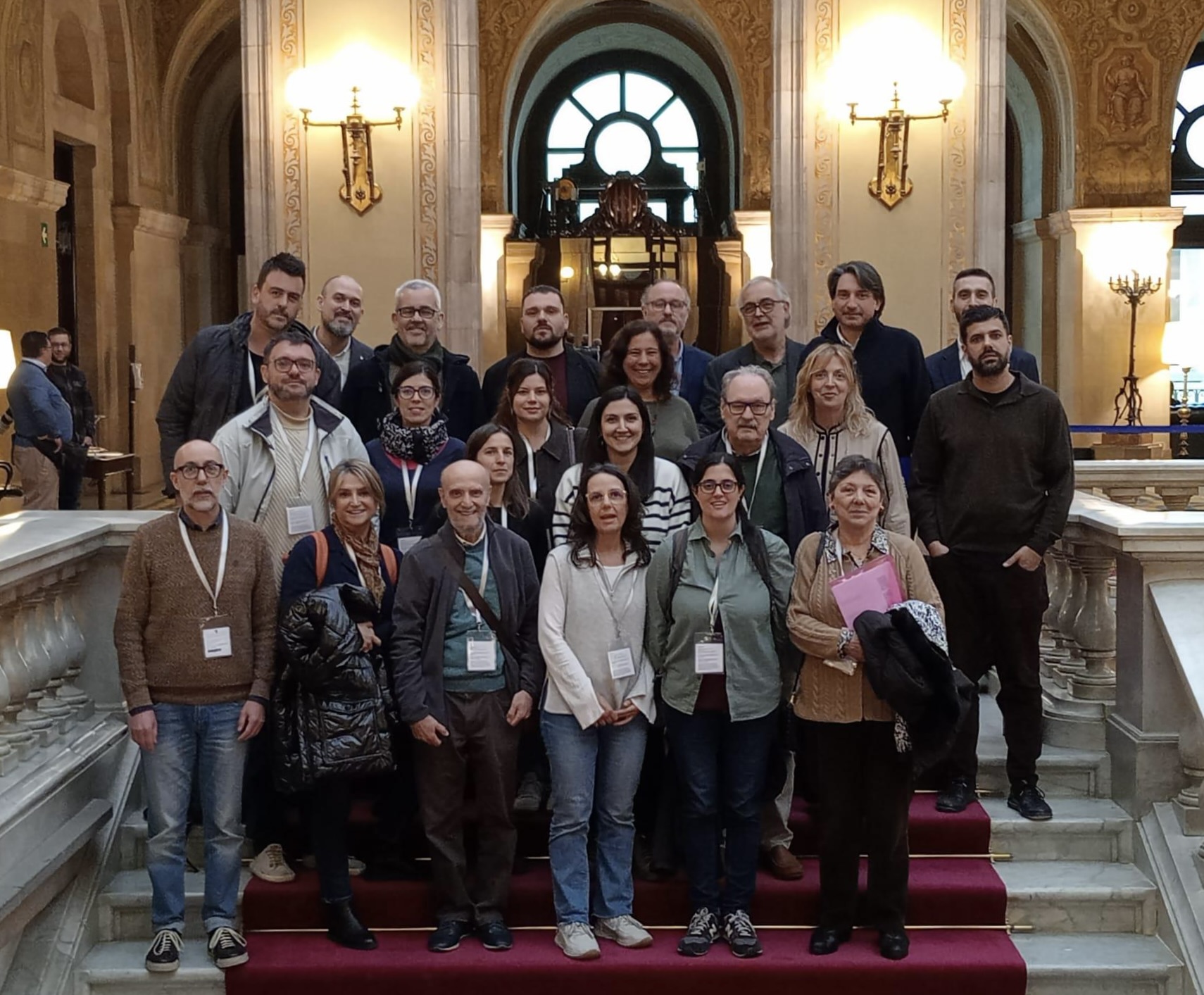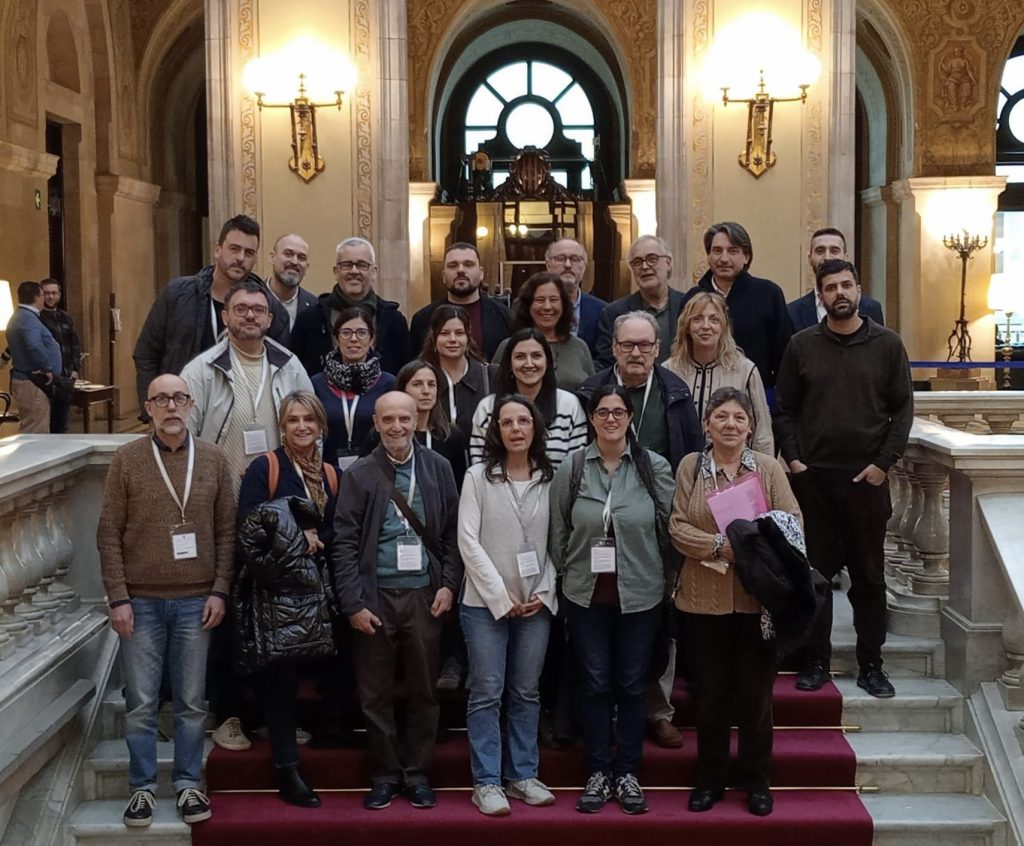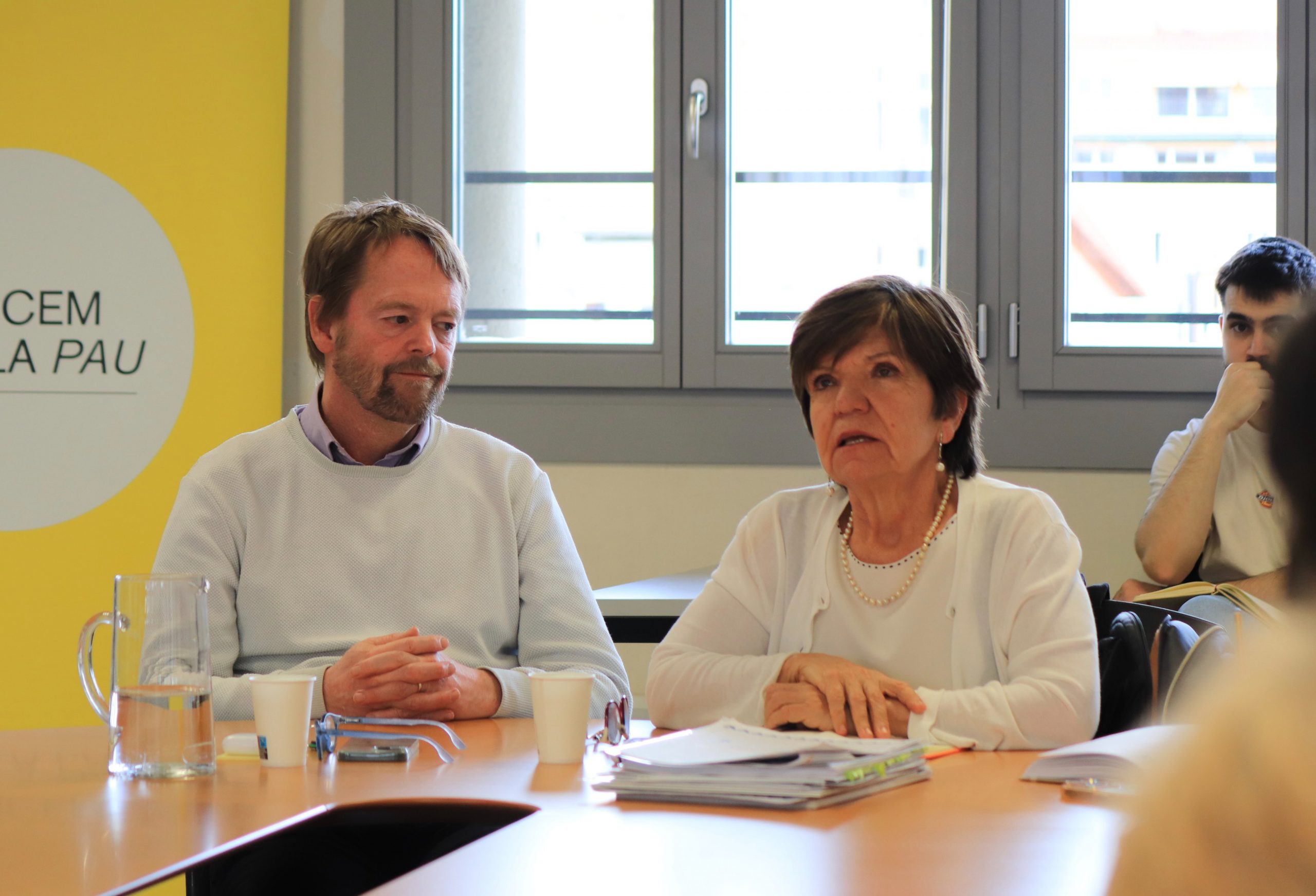On Thursday, 19 February, the exhibition “PolsXtrems. Your Gym to Buff Up Your Critical Thinking” was inaugurated at Palau Robert. The initiative is led by ICIP and the Directorate-General for Public Outreach, with curation by the creative studio Domestic Data Streamers, which is responsible for art direction and exhibition design.
PolsXtrems is an interactive, multimedia exhibition that recreates a gym where visitors can train critical thinking, empathy, and curiosity about other people’s opinions. In a context marked by growing disinformation, polarization and hate speech, the exhibition space mirrors a gym training room, offering different “workouts” to build mental flexibility and critical spirit. It concludes with a recreated locker room that invites visitors to listen to diverse perspectives on current social debates such as immigration, tourism and language.
The opening event featured remarks by the Director-General for Public Outreach, Elisabet Valls; the Director of ICIP, Kristian Herbolzheimer; and the Director-General for Development Cooperation, Andrea Costafreda.
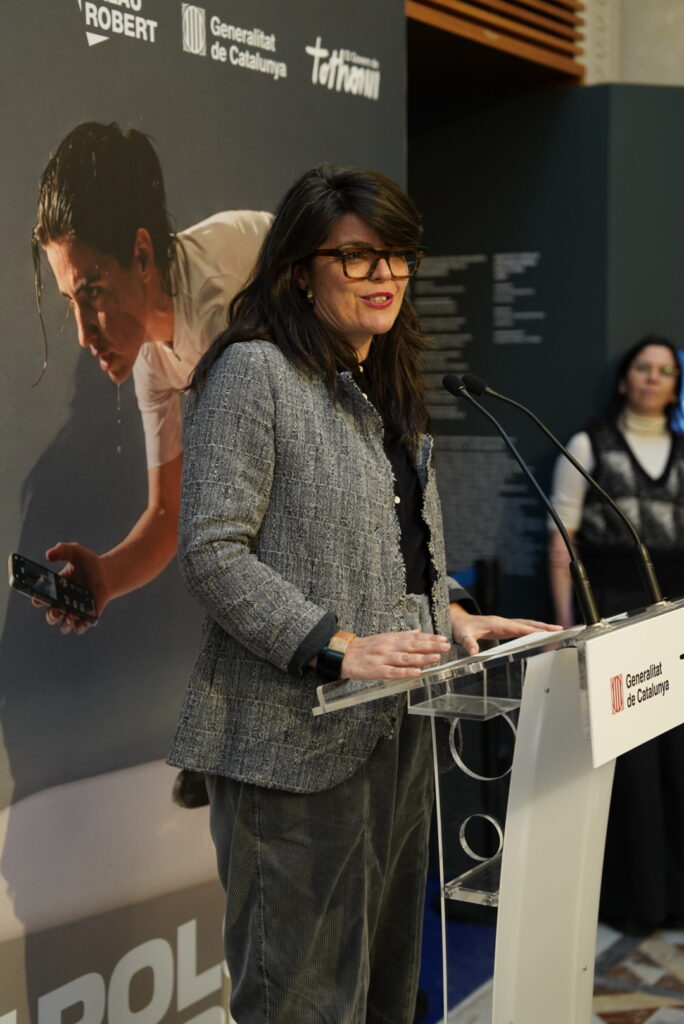
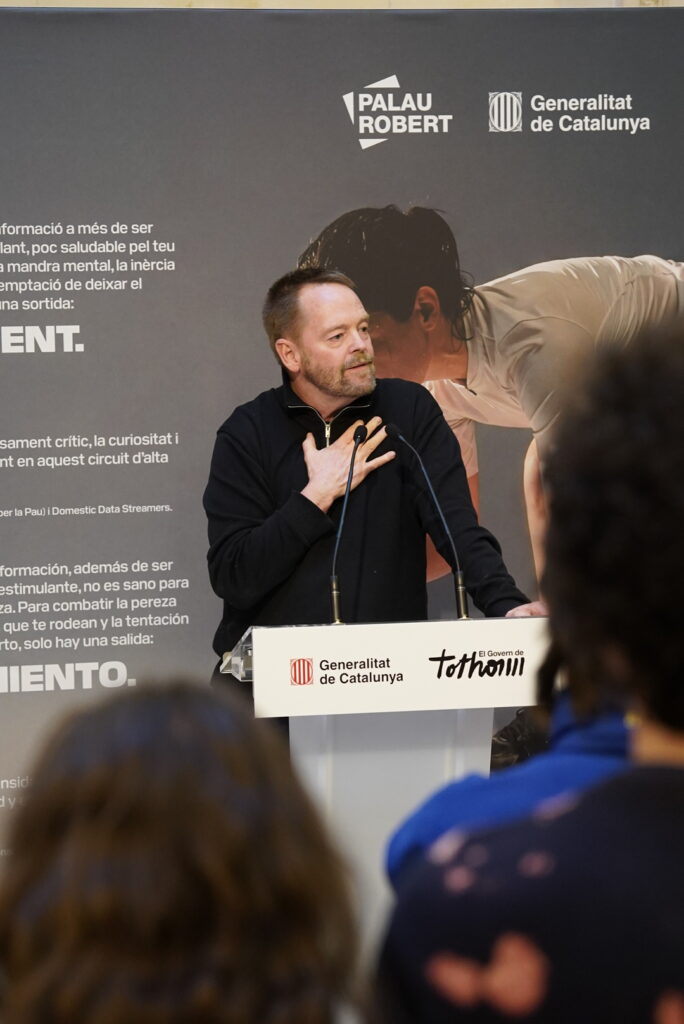
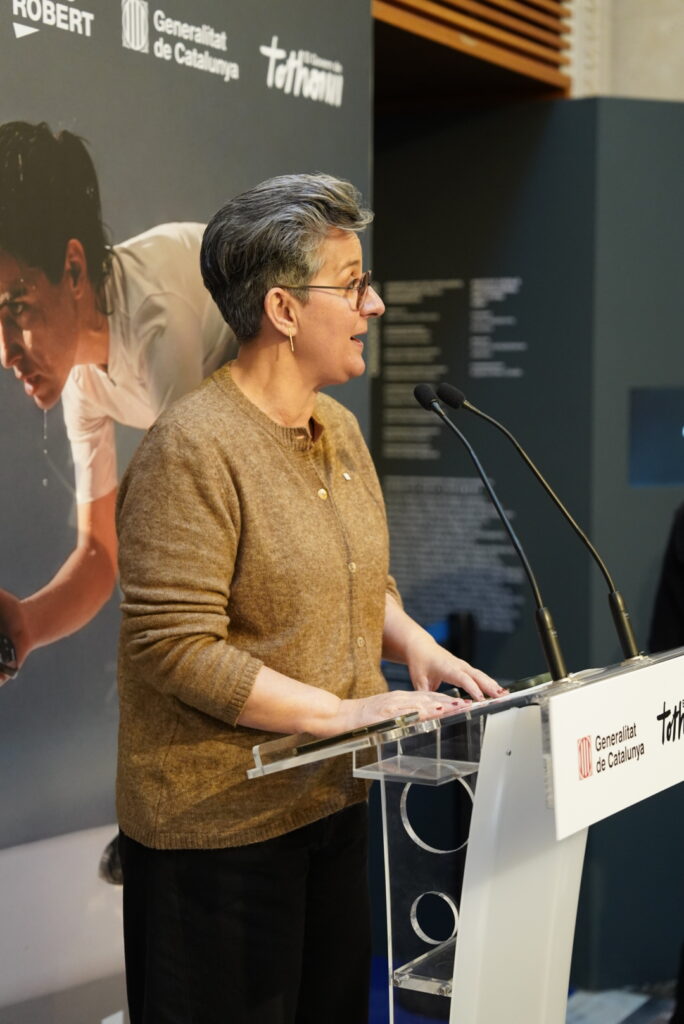
In her welcome address, Valls emphasised that “we can all become victims of polarisation and fall, without even realising it, into biased, unfair or potentially hateful narratives. It is essential to pause, to take a moment, and, as ICIP aptly proposes with this exhibition, overcome mental laziness and sign up for the gym of the mind: to exercise critical thinking, strengthen our reflective muscles and empathy for the common good.”
Herbolzheimer, in turn, stressed the importance of this mental training: “We celebrate disagreement, but we need tools to manage it constructively. ‘PolsXtrems’ invites us to identify our own cognitive biases and to train respect and curiosity toward those who think differently.”
Finally, in her closing remarks, Costafreda noted that from a development cooperation perspective, “it is not all about funding or technical solutions; many inequalities are rooted in social norms, narratives and worldviews,” and therefore it is essential to keep an open mind.
The inauguration concluded with a performance by Marina Olivares, who, playing the role of a gym trainer, invited attendees to “exercise in order to train their critical spirit.”

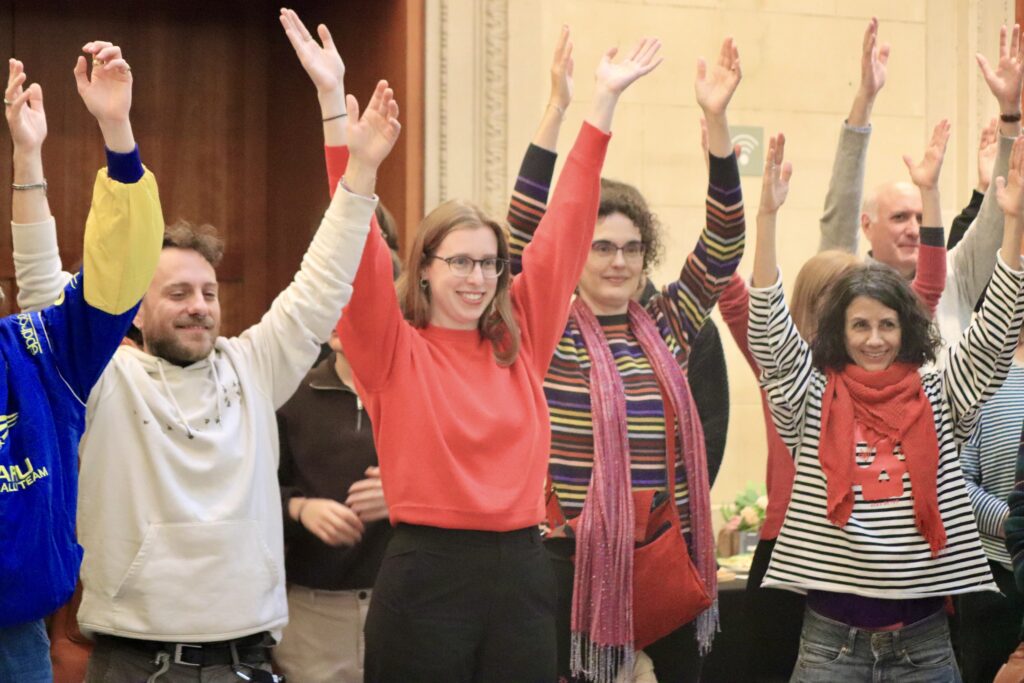

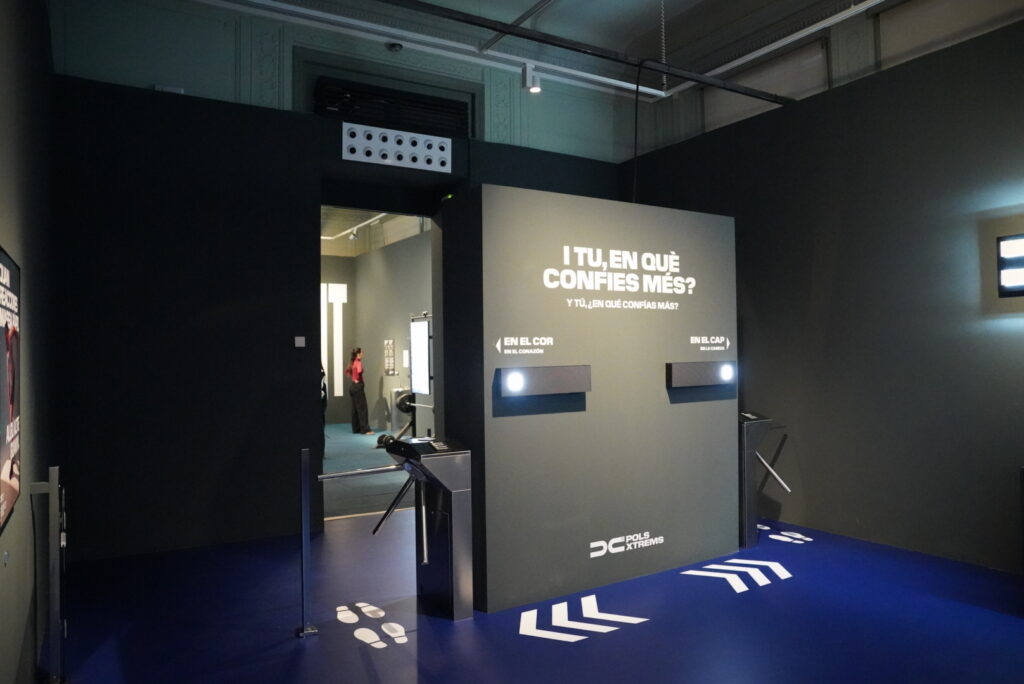
“PolsXtrems” is therefore a new concept of a gym designed to combat mental laziness, increase flexibility when listening to different points of view, counter disinformation, strengthen empathy and build resilience against toxic polarization. The exhibition can be visited in Room 2 at Palau Robert until 17 May. Admission is free and open to all.
The production of the exhibition is part of ICIP’s working area “Social and Political Dialogue”, through which ICIP promotes dialogue and mutual understanding as positive tools for conflict transformation, and examines the challenges that toxic polarization poses to democratic societies.



